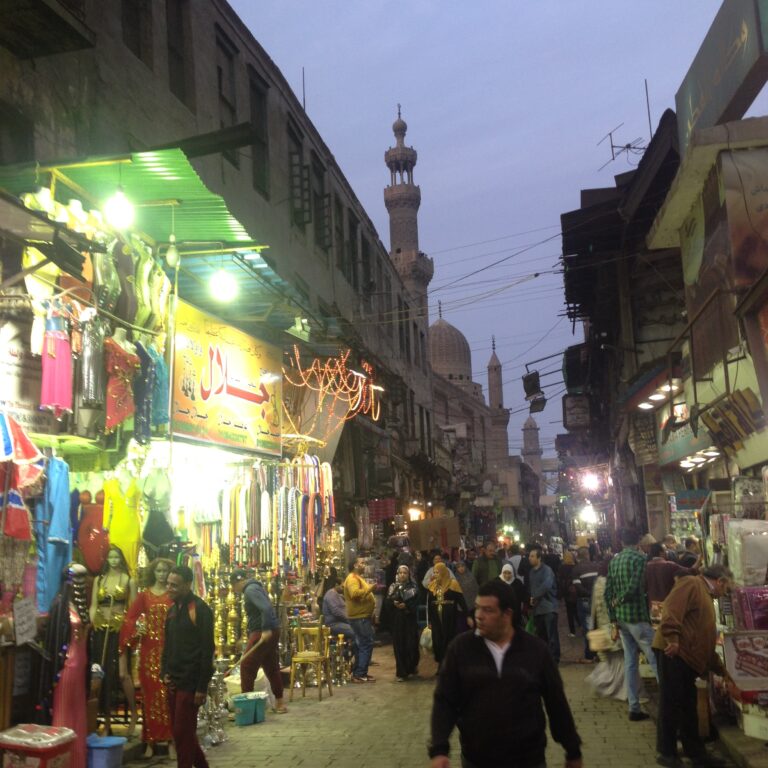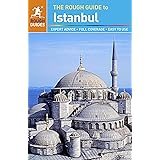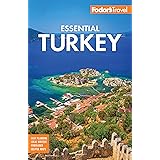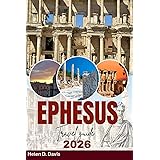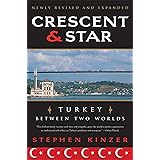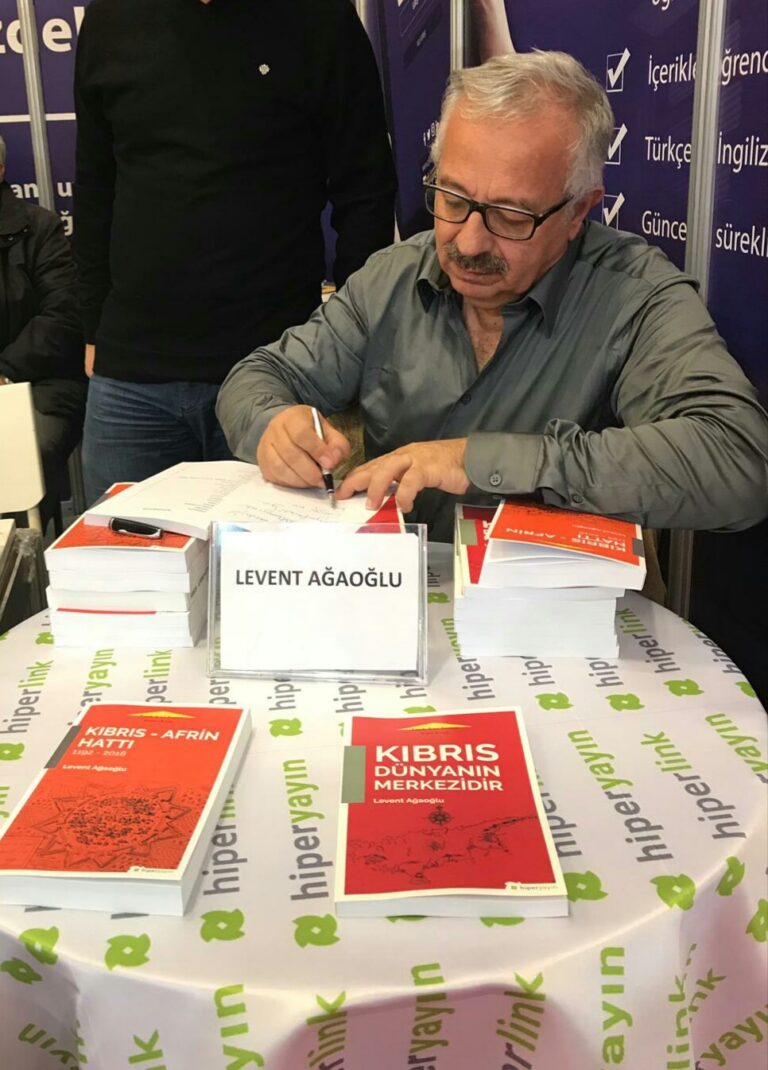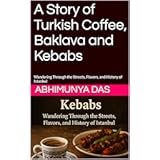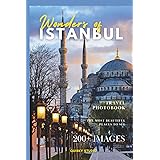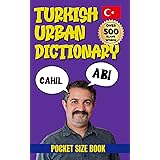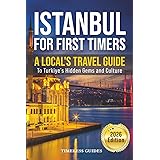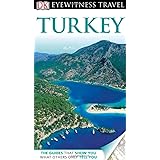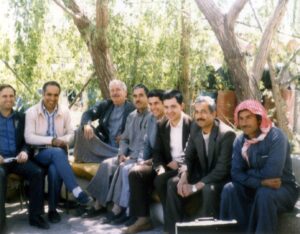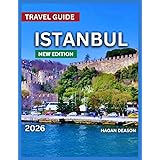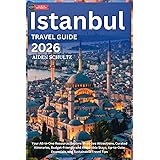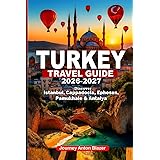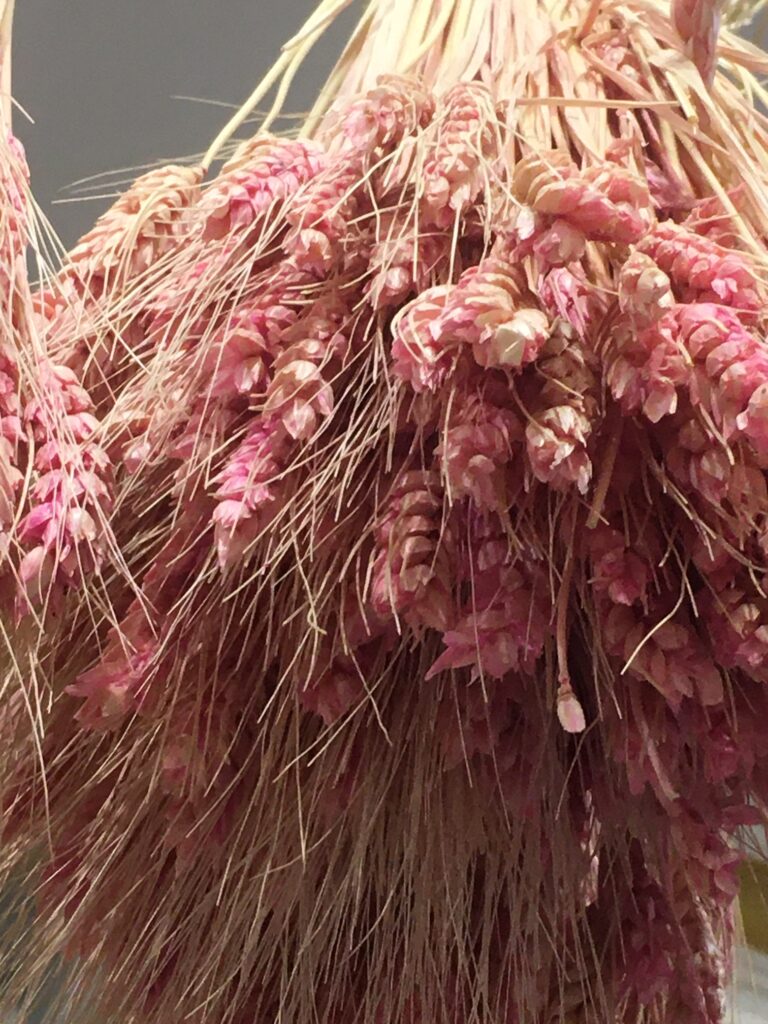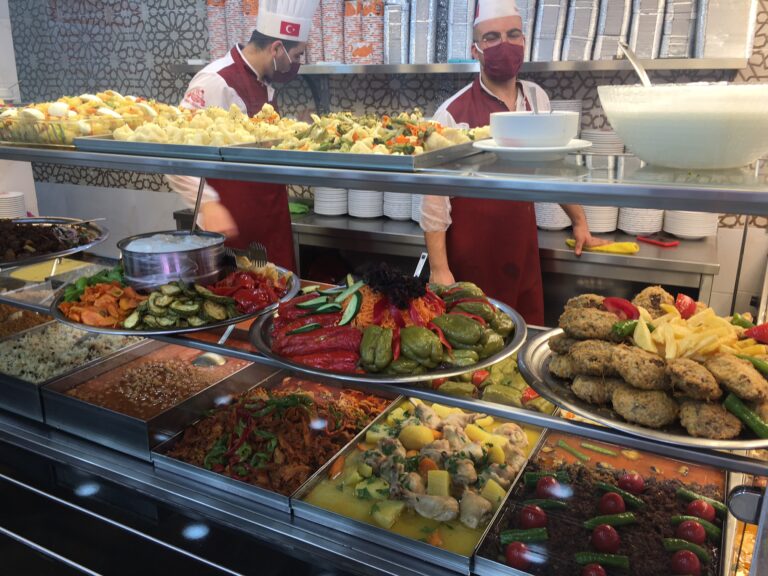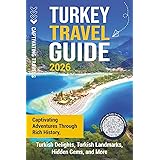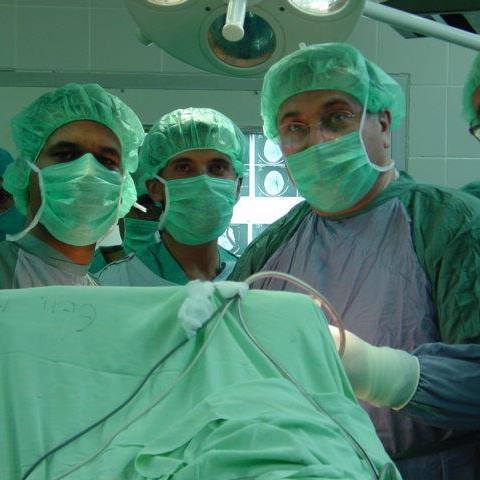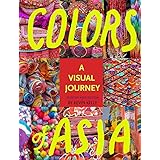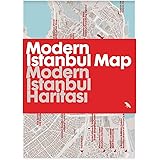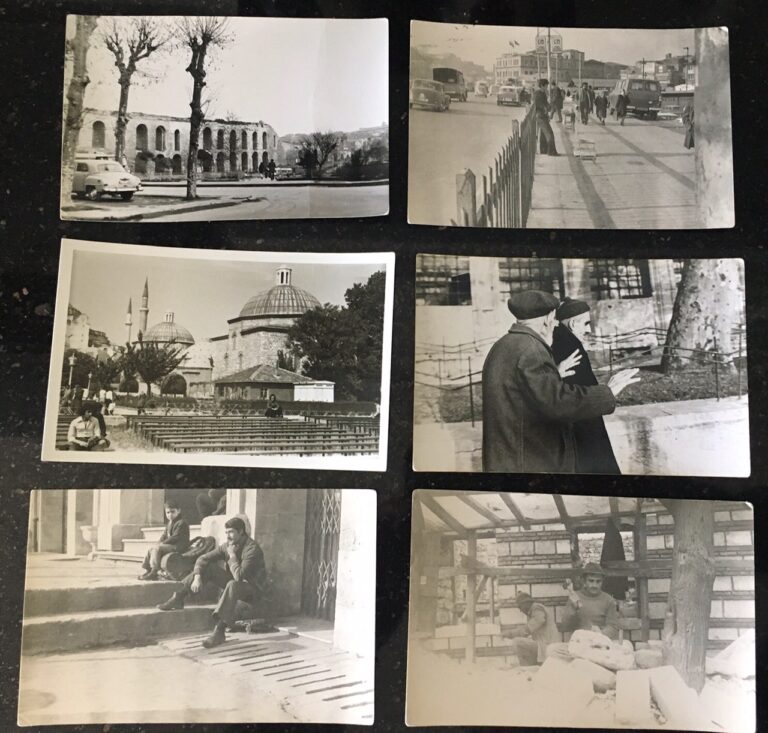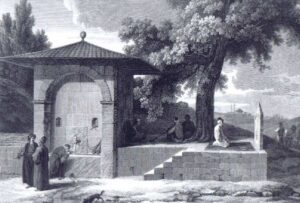Global Ideas Center- Cyprus
The three Mediterraneans in question; Mediterranean Basin (Mediterrane), New Mediterranean (Pacific) and Silk Road (Turkestan) geographies are united through the “Center of the World Cyprus” with the 21st century.
Despite the Western Atlantic powers that created the concepts of Central Asia and the Middle East in the 19th and 20th centuries for their own interests, the ancient reality of thousands of years since ancient times, the meaning of those called Mediterrane (Mediterranean) and Zhongguo (China).
The Center of the World, the rare island of the Mediterranean, Cyprus, with its location holding the center of the Cradle of Civilizations, has a global potential as the intellectual treasure of the Basin.
The comparative advantage of Cyprus is its location and opportunity as an island of ideas, a paradise of contemplation, and a production center for high-value ideas.
It is extremely important that European philosophy from the continents surrounding the Mediterranean cannot be grasped without the development process that took place elsewhere and passed to Europe. The beginnings of the development of Western philosophy lie in the region that the Hellenes called the Orient (Anatole). The first center here was Miletos. Thales, Anaximandros and Anaximenes became the first philosophers in the history of philosophy with their intellectual activity and the problems they faced.
The second and main center was in Europe: Athens. However, the third center right after that, Alexandria (Alexandria), is again in Egypt outside the borders of Europe, and Baghdad, which follows it, is a little deeper in the Orient. Source: Elmar Holenstein, Atlas of Philosophy, Spaces and Ways of Thinking, June 2015, Istanbul, Küre Publications
Cyprus, located in the middle of the Miletus-Alexandria-Baghdad triangle; It is in a position to reproduce the intellectual heritage of Asia Minor-Greater Asia-Africa. Cyprus has started to accumulate an important intellectual infrastructure over the years by providing education to the students of the countries in the triangle in question at the universities on the island. Starting from the coming years, targeting the world’s first place in intellectual activities of this accumulation should be put on the agenda.
The subject of science diplomacy, mentioned by our teacher Mehmet Hasgüler, is the golden key. The fact that students receive education in 110 countries in the TRNC has made it a UN position. Southern Cyprus has no such concerns and advantages, nor can it be. In fact, the TRNC has undertaken a full UN Mission in terms of bringing together the universities and countries that host students from 110 countries. While UN 5 forces are located in the south of the island, university education is given to students from 110 countries, like the UN, in the north. The mission “The world is bigger than 5” becomes reality on the island itself.
The issue of recruiting faculty and students from 110 countries is very important. There has been an incredible attack on science diplomacy and TRNC universities in the international arena, and recently a similar situation has started due to competition from the homeland, which is really thought-provoking. On the other hand, the number of universities on this subject in the Greek Cypriot Administration is few. Source: Ardan Zentürk Moderator Night https://twitter.com/yirmidorttv/status/1155961923424288769 Prof Mehmet Hasgüler. Are we aware of the importance of science diplomacy? Cyprus Newspaper 26 August 2019
https://www.kibrisgazetesi.com/bilim-diplomasisini-oneminin-farkinda-miyiz-makale,9002.html
Our knowledge shows that the mental conditions for philosophizing began in Africa. The most important contribution of the African continent to philosophy is the ability to speak. Having the ability to speak means that a person has the cognitive ability to not only understand but also reveal every philosophy that has developed since the Axial Age 2500 years ago. Early humans, who spread from Africa to the rest of the world between 50,000 and 100,000 years ago, carried this ability with them. Source: Elmar Holenstein, Atlas of Philosophy, Spaces and Ways of Thinking, June 2015, Istanbul, Küre Publications
Cyprus, where Time and Grounds intersect, will bring out a universal Mind from the treasure of these intersections and will make it available to all humanity.
Despite the European Hegenomy, which only achieved 500 years of dominance by using external resources that did not belong to it; Mathematics and rationality of Asia Minor, symbolized by Miletus; Diophantus mathematics symbolized by Alexandria, Pythagorean wisdom (sophia) and Harezmi mathematics symbolized by Baghdad, wisdom of Beytül Hikme; The Afrasia Millennium, which emerged from its own resources in Cyprus, the Center of the World, from the beginning of the 21st century, is preparing to take its place in history as the 3rd millennium. The richness of thought of Ancient Egypt, Mesopotamia and Transoxiana is being reshaped on the island of Cyprus.
All innovations (paper, printing press, gunpowder, compass) to Europe were carried from Greater Asia by the Silk Road and the Iron Silk Road, which will be operational from 2035, will connect the New Mediterranean (Pacific Ocean) with the Cyprus-based Mediterranean. While Turkey in Asia Minor was knitted with iron nets in the 1935s, a century later, the 2035s will mark the beginning of a new era, the Silk Road Age, in which Greater Asia will connect the oceans with railways.
Ancient Greek civilization emerged from the Mediterranean Civilization, which was common among the nations living on the Mediterranean coast, which was formed with the help of the Egyptians, Sumerians, Hittites, Assyrians and Phoenicians in the early ages, and the ancient Roman civilization from the Greek civilization. After it was divided into two as Eastern Rome and Western Rome, the Europeans, who were the heirs of Western Rome, adopted this civilization and advanced it. Source: Ziya Gökalp, Principles of Turkism, Ministry of National Education Press, 1st Edition. Istanbul 1976, p. 48. 132 Ibid. NS. 136
Eastern Rome, on the other hand, was continued as the Seljuk and then the Ottoman Empires by the Turks, who stretched from Far Asia to Asia Minor, with the victories of 1071 and 1453. Thus, the Mediterranean Civilization, as a unique civilization with many components, has a history of ten thousand years and dynamic interactions.
Skopje (Macedonia), where Turkish culture is extremely strong as in Cyprus, is the birthplace of Yahya Kemal Beyatlı, one of the greatest poets and intellectuals of Turkish poetry. Yahya Kemal, who sees his geography within the Mediterranean civilization basin, strives to reach the universal, especially through this thesis. He realistically determined the borders (misak-ı milli) and then the milestone (1071 and 1453) of the homeland, from which he claimed to have been created as an indivisible whole by the religion and the nation, and included it in the European civilization through the Mediterranean basin with a final effort. Of course, while establishing this synthesis, he takes care not to overlap with any doctrine, theory, and not to construct theories that will impose responsibility on himself. Source: Yahya Kemal, ‘Letters, Articles’, Istanbul Fetih Cemiyeti Publications. 2017. pp.259
Homeland is never a theory, it is a land. The earth is the tomb of the ancestors. It is where mosques are built. Industry is the exhibition of what has been done in the name of nafise (Fine Arts).”
Source: Kadrican Mendi, Yahya Kemal’s Politics
http://www.haksozhaber.net/okul/article_detail.php?id=2744
“Yahya Kemal’s contemplation is on the lines of Vienna, Budin, Belgrade, Istanbul, Baghdad, Basra. Yahya Kemal Bey’s reflective side is also important; It has prose style writings.” Source: Ömer Tuğrul İnanç (October 14, 2016, TRT Music)
We are at the dawn of the 3000’s. While the dawn was getting brighter, the first lights of the period, when ideas and information were more valuable, started to appear with the 21st century. The geography of Turkey, where ideas first sprout, is one of the fertile geographies where five of the first ten thinkers to be born live. The result of the gene diversity and richness in the pool of the peninsulas of Turkey (Rumelia, Anatolia) at the crossing point of the continents (Europe, Asia, Africa) is likewise richness and diversity of thought.
The first essay on the Encyclopedia of Universal Thinkers begins with 2600 years of experience, beginning with Tales of Miletus, the first known philosopher born in 624 BC. Among the top 10 great philosophers, the first 3 and 5 in total are from the geography of Turkey. Philosophy started in Turkey.
a. Thales, Miletus
b. Anaximander, Miletus
c. Pythagoras, island of Samos
d. Laozi
e. Confucius
f. Sun Wu
g. Heraclitus, Ephesus
h. Parmenides
i. Anaxagoras, Klazomenai, Urla
j. Protagoras
Source: Xue Xiaoyuan, Dr. The Charisma of 100 Philosophers. 2018. China Pictorial Press.
The Mediterranean is the basin of global ideas, the source of ideas, the memory of humanity’s ideas. Philosophy-science, the discipline of human systematic thought, was initiated by Aristotle on the shores of the Mediterranean. Cyprus, the carrier of a huge legacy, is a candidate for global leadership in the production of ideas in this way. The strong is right and being strong is only possible with globalism. The Turkish Empire (Ottoman Dynasty) took the lead in treating the Mediterranean as a global repository for the unlimited recruitment of human and therefore ideas.
In terms of language, religion, race, sect and disposition, starting from Edirne (1363), the principle of non-humanity from Ebu Hanife ensured the sustainability of the Mediterranean Empire of the Turks for centuries. Edirne prepared the conquest of Istanbul. According to the 60/40 non-Muslim/Muslim combination, the common living style is taken as a basis. Within the framework of the principle of humanity of the Hanafi sect, all people have indispensable rights and this principle came to life in Edirne. Europe’s 2nd largest Synagogue and Selimiye Mosque are in Edirne. Ahl hanefi. The People of the Book. The inviolability of people’s rights and freedoms The principle of non-humanity was applied for the first time in Edirne and brought to Istanbul. Source: Edirne Governor Günay Özdemir Avrasya One: 18 February 2017 Civilizations Partnership https://www.youtube.com/watch?v=Cg804XHaPpI
The richness of the past heritage and the self-confidence brought about by the experience is the assurance that the Turks, who have been on the Mediterranean coast since 1221, will reproduce their global thinking practices in the coming years, starting with Cyprus.
The Turks, who have the longest coastline on the Mediterranean coast and the heartland of Cyprus, have developed the tradition of creating and spreading ideas, which they have accumulated with the tradition of Kaman (Shaman), Bilge, Abdal, Alperen, Eren, Derviş, Dede, Veli, Scholars, which they have developed starting from Greater Asia, They will continue with Yesevi tables in Cyprus.
At the starting point of the Silk (Wisdom) Road, starting with Bilge Tonyukuk in the Yunzhong Chugay mountains along the 41st parallel and passing through Yusuf Has Hacip (Turkestan), Yesevi Ahmet (Piri Turkistan), Haci Bektas-i Veli, Yunus Emre (Diyar-ı Rum) once again the intellectual riches described as Mediterranean Civilization with Yahya Kemal Beyatlı in Rumeli; We will blend it in Cyprus, in the center of the Mediterranean Crucible.
Britain (United Kingdom) on which the sun never sets is an island state in the Atlantic Ocean. Starting from the 1500s and especially in the 1600s, this island state has become to rule the whole world based on the power of thought. Francis Bacon in Philosophy and Science (1561-1626), John Locke in Political Science (1632-1704), Isaac Newton in Natural Sciences (1643-1727), Adam Smith in Economics (1723-1790), Charles Darwin in Evolutionary Theory (1809-1882), They are English thinkers who order the world with their thoughts. The sole power of thought has caused the English language to become a universal language.
Cyprus, an island state, has incredible lessons to be learned from these developments. Cyprus is the island of thought;
• Greater Asia (Silk Road, Turkestan, Transoxiana, Khorasan, Mesopotamia, Rumelia),
• Asia Minor (Anatolia),
• Africa
It will rise to the position of the intellectual center of the Afrasian Millennium by feeding on the legacies of thought.
A Story of Turkish Coffee, Baklava and Kebabs: Wandering Through the Streets, Flavors, and History of Istanbul
$2.99 (as of 06/02/2026 22:15 GMT +03:00 - More infoProduct prices and availability are accurate as of the date/time indicated and are subject to change. Any price and availability information displayed on [relevant Amazon Site(s), as applicable] at the time of purchase will apply to the purchase of this product.)The Rough Guide to Istanbul
$4.13 (as of 06/02/2026 22:15 GMT +03:00 - More infoProduct prices and availability are accurate as of the date/time indicated and are subject to change. Any price and availability information displayed on [relevant Amazon Site(s), as applicable] at the time of purchase will apply to the purchase of this product.)Wonders of Istanbul: A Photo Collection of the City’s Most Beautiful Places to See – A Stunning Coffee Table Travel Photobook
$23.99 (as of 06/02/2026 22:15 GMT +03:00 - More infoProduct prices and availability are accurate as of the date/time indicated and are subject to change. Any price and availability information displayed on [relevant Amazon Site(s), as applicable] at the time of purchase will apply to the purchase of this product.)Rick Steves Istanbul: With Ephesus & Cappadocia
$10.45 (as of 06/02/2026 22:15 GMT +03:00 - More infoProduct prices and availability are accurate as of the date/time indicated and are subject to change. Any price and availability information displayed on [relevant Amazon Site(s), as applicable] at the time of purchase will apply to the purchase of this product.)Istanbul Travel Guide 2025: Discover Istanbul’s Top Attractions, Hidden Gems, Cultural Highlights, Timely Itineraries, and Budget-Friendly Hacks for Every Traveler
$0.99 (as of 06/02/2026 22:15 GMT +03:00 - More infoProduct prices and availability are accurate as of the date/time indicated and are subject to change. Any price and availability information displayed on [relevant Amazon Site(s), as applicable] at the time of purchase will apply to the purchase of this product.)Laminated Istanbul Map by Borch (English) (English, Spanish, French, Italian and German Edition)
$5.96 (as of 06/02/2026 22:15 GMT +03:00 - More infoProduct prices and availability are accurate as of the date/time indicated and are subject to change. Any price and availability information displayed on [relevant Amazon Site(s), as applicable] at the time of purchase will apply to the purchase of this product.)Istanbul: A Collection of Beautiful Photos for Istanbul Lovers, Coffee Table Picture Book (Travel Photography)
$27.99 (as of 06/02/2026 22:15 GMT +03:00 - More infoProduct prices and availability are accurate as of the date/time indicated and are subject to change. Any price and availability information displayed on [relevant Amazon Site(s), as applicable] at the time of purchase will apply to the purchase of this product.)DK Top 10 Istanbul (Pocket Travel Guide)
$11.39 (as of 06/02/2026 22:15 GMT +03:00 - More infoProduct prices and availability are accurate as of the date/time indicated and are subject to change. Any price and availability information displayed on [relevant Amazon Site(s), as applicable] at the time of purchase will apply to the purchase of this product.)Turkish Urban Dictionary: 500 Slang Words & Phrases to Speak Like a Local in Turkey (Urban Slang Dictionary)
$17.90 (as of 06/02/2026 22:15 GMT +03:00 - More infoProduct prices and availability are accurate as of the date/time indicated and are subject to change. Any price and availability information displayed on [relevant Amazon Site(s), as applicable] at the time of purchase will apply to the purchase of this product.)DK Eyewitness Travel Guide Istanbul (Eyewitness Travel Guides)
$10.36 (as of 06/02/2026 22:15 GMT +03:00 - More infoProduct prices and availability are accurate as of the date/time indicated and are subject to change. Any price and availability information displayed on [relevant Amazon Site(s), as applicable] at the time of purchase will apply to the purchase of this product.)High Albania
$0.99 (as of 06/02/2026 22:20 GMT +03:00 - More infoProduct prices and availability are accurate as of the date/time indicated and are subject to change. Any price and availability information displayed on [relevant Amazon Site(s), as applicable] at the time of purchase will apply to the purchase of this product.)Crescent and Star: Turkey Between Two Worlds
$6.49 (as of 06/02/2026 22:20 GMT +03:00 - More infoProduct prices and availability are accurate as of the date/time indicated and are subject to change. Any price and availability information displayed on [relevant Amazon Site(s), as applicable] at the time of purchase will apply to the purchase of this product.)A Guide to Biblical Sites in Greece and Turkey
$15.83 (as of 06/02/2026 22:20 GMT +03:00 - More infoProduct prices and availability are accurate as of the date/time indicated and are subject to change. Any price and availability information displayed on [relevant Amazon Site(s), as applicable] at the time of purchase will apply to the purchase of this product.)Turkey Travel and Exploration Guide - 2025: The Ultimate Traveler's Guide to Turkey from the Experiences of a Local Guide
$11.01 (as of 06/02/2026 22:20 GMT +03:00 - More infoProduct prices and availability are accurate as of the date/time indicated and are subject to change. Any price and availability information displayed on [relevant Amazon Site(s), as applicable] at the time of purchase will apply to the purchase of this product.)DK Top 10 Istanbul (Pocket Travel Guide)
$2.80 (as of 06/02/2026 22:20 GMT +03:00 - More infoProduct prices and availability are accurate as of the date/time indicated and are subject to change. Any price and availability information displayed on [relevant Amazon Site(s), as applicable] at the time of purchase will apply to the purchase of this product.)Istanbul: Memories and the City (Vintage International)
$1.11 (as of 06/02/2026 22:20 GMT +03:00 - More infoProduct prices and availability are accurate as of the date/time indicated and are subject to change. Any price and availability information displayed on [relevant Amazon Site(s), as applicable] at the time of purchase will apply to the purchase of this product.)Istanbul For First Timers: A Local's Travel Guide To Turkiye's Hidden Gems and Culture
$15.99 (as of 06/02/2026 22:20 GMT +03:00 - More infoProduct prices and availability are accurate as of the date/time indicated and are subject to change. Any price and availability information displayed on [relevant Amazon Site(s), as applicable] at the time of purchase will apply to the purchase of this product.)The Mini Rough Guide to Istanbul and the Aegean Coast: Travel Guide with eBook
$9.27 (as of 06/02/2026 22:20 GMT +03:00 - More infoProduct prices and availability are accurate as of the date/time indicated and are subject to change. Any price and availability information displayed on [relevant Amazon Site(s), as applicable] at the time of purchase will apply to the purchase of this product.)DK Eyewitness Travel Guide: Turkey
$3.67 (as of 06/02/2026 22:20 GMT +03:00 - More infoProduct prices and availability are accurate as of the date/time indicated and are subject to change. Any price and availability information displayed on [relevant Amazon Site(s), as applicable] at the time of purchase will apply to the purchase of this product.)The Turkish Cookbook
$42.79 (as of 06/02/2026 22:20 GMT +03:00 - More infoProduct prices and availability are accurate as of the date/time indicated and are subject to change. Any price and availability information displayed on [relevant Amazon Site(s), as applicable] at the time of purchase will apply to the purchase of this product.)Turkish Words In Arabic with respect to Clothing Culture
-
aba
-
abraş
-
al
-
ala
-
alaça
-
altın
-
altınçı
-
askı
-
balga/baldak
-
barçın-
-
basma
-
baş bağı
-
baş tahta
-
baş tamirci
-
başlık
-
başmak
-
başmakçı
-
başman
-
bez
-
bıçkı/bıçak
-
biniş
-
boğma
-
bohça/bokça
-
boya
-
boyacı
-
boyunbağı
-
börk/böri/bürka
-
bürüm
-
bürünçek
-
cüzdan
-
çakmak
-
çakmakçı
-
cakşır/çakçur/çapçur
-
çakşırlı
-
çamaşır
-
çanta
-
çapan/çaban
-
çarşaf
-
çengel
-
çevre
-
çift/çift iş-i
-
çile
-
çivit
-
çizme
-
çizmeci
-
çorap
-
çubuk
-
çuha/çoka/çöge/çuga
-
çul/sulak
-
degenek+
-
diz/dizlik/ter-d
-
dolama
-
don/ton
-
duvak
-
düğme
-
eldiven
-
emzik
-
entari
-
eski
-
fes
-
fırça
-
fistan/pistan
-
futa
-
futacı
-
gecelik
-
gözlük
-
güzel
-
halat
-
halatçı
-
hâki
-
havlu
-
hazırcı
-
kavuk
-
kayış/kadış
-
kaytan/kaytanlı
-
kaytarma/kantarma
-
kazık/karuk
-
kemer
-
kemha/kamka
-
kesim
-
kılıç
-
kırbaç
-
iğne
-
kaba
-
kaftan
-
kalıp/kalıg
-
kalpak
-
kaltak
-
kançuka/kanca/kamçı
-
kaput
-
kaş bağı
-
kat
-
kolluk
-
kopça
-
köstek
-
kumaş
-
kundak
-
kunduracı
-
kuşak/kurşag
-
kutu
-
kürk
-
lapçın
-
legen/lagun
-
leke
-
makfülcü
-
manifatura-cı
-
mekik
-
mendil
-
muşta
-
oya
-
oyma
-
ökçe
-
örnek
-
pabuç
-
paçalı
-
paçavra
-
pafta
-
palaska
-
penbe
-
peşkir
-
püskül
-
sabun
-
saç/çaç
-
saçak/çaçak
-
sahtiyan
-
sakal/sakallı
-
salta
-
sarma
-
sedef/sedefçi
-
sırma
-
sicim
-
şal
-
şalvar/çalbur
-
şapka
-
şayak
-
şayakçı
-
şorkama
-
takım
-
takke/tagya
-
tasma
-
tay/taya
-
teğelti/teğel/teyel
-
telli
-
tepe/töbe
-
tepelik
-
terlik
-
terzi
-
titik
-
toka
-
tokmak
-
tomak
-
toplu iğne
-
topuk
-
torba/tobra
-
tozluk/tuzluk
-
tuğ
-
tül
-
tülbent
-
ütü/ütüg/*otug/*yotug
-
yabaga/cabaga/yapağı
-
yaka
-
yal/yele
-
yaldız
-
yama
-
yaşmak/naşmak
-
yelek
-
yeşim
-
yigçi/siviçi
-
yiren/yepcn
-
yirim
-
yılankavi
-
yılım/ilim
-
yıpar
-
yolma
-
yuhta/yuft
-
yumşan
-
yumak
-
yun-
-
yurak
-
yük
-
yüklü
-
yün/yung
-
yüzmeç
-
yüzük/yüksük
-
zağara
-
zar
-
zerbafte
-
zerdeva/zerdehan
-
zıbın
-
zıh
-
zımba
-
zincir
-
ziynet
-
zülüf
-
zümrüt
SOURCE: TÜRKÇE’NİN KOMŞU DİLLERE VERDİĞİ GİYİM KUŞAM KÜLTÜRÜYLE İLGİLİ KELİMELERPROF. DR. GÜNAY KARAAĞAÇ Türkçe’nin Arapçaya Verdiği Giyim Kuşam Kültürüyle İlgili Kelimeler/
Istanbul Travel Guide 2026: Top Places to Visit, Things to Do, Exploring Neighborhood, Itineraries, Festivals and Events, Food and Drink, Shopping, ... History And Culture. (EXPLORE THE GLOBE)
$13.99 (as of 06/02/2026 22:15 GMT +03:00 - More infoProduct prices and availability are accurate as of the date/time indicated and are subject to change. Any price and availability information displayed on [relevant Amazon Site(s), as applicable] at the time of purchase will apply to the purchase of this product.)The Rough Guide to Istanbul
$4.13 (as of 06/02/2026 22:15 GMT +03:00 - More infoProduct prices and availability are accurate as of the date/time indicated and are subject to change. Any price and availability information displayed on [relevant Amazon Site(s), as applicable] at the time of purchase will apply to the purchase of this product.)The Turkish Cookbook
$42.79 (as of 06/02/2026 22:15 GMT +03:00 - More infoProduct prices and availability are accurate as of the date/time indicated and are subject to change. Any price and availability information displayed on [relevant Amazon Site(s), as applicable] at the time of purchase will apply to the purchase of this product.)Istanbul Travel Guide 2026: Your All-in-One Resource: Explore Must-See Attractions, Curated Itineraries, Budget-Friendly and Accessible Stays, Up-to-Date Essentials, and Sustainable Travel Tips
$15.99 (as of 06/02/2026 22:15 GMT +03:00 - More infoProduct prices and availability are accurate as of the date/time indicated and are subject to change. Any price and availability information displayed on [relevant Amazon Site(s), as applicable] at the time of purchase will apply to the purchase of this product.)Blue Guide Istanbul
$9.99 (as of 06/02/2026 22:15 GMT +03:00 - More infoProduct prices and availability are accurate as of the date/time indicated and are subject to change. Any price and availability information displayed on [relevant Amazon Site(s), as applicable] at the time of purchase will apply to the purchase of this product.)Pocket Rough Guide Istanbul: Travel Guide with eBook
$10.11 (as of 06/02/2026 22:15 GMT +03:00 - More infoProduct prices and availability are accurate as of the date/time indicated and are subject to change. Any price and availability information displayed on [relevant Amazon Site(s), as applicable] at the time of purchase will apply to the purchase of this product.)Istanbul For First Timers: A Local's Travel Guide To Turkiye's Hidden Gems and Culture
$15.99 (as of 06/02/2026 22:15 GMT +03:00 - More infoProduct prices and availability are accurate as of the date/time indicated and are subject to change. Any price and availability information displayed on [relevant Amazon Site(s), as applicable] at the time of purchase will apply to the purchase of this product.)TURKEY TRAVEL GUIDE 2026-2027: Discover Istanbul, Cappadocia, Ephesus, Pamukhale & Antalya: Local Secrets, Expert Tips, Hidden Gems, Cultural Insights, and Smart Itineraries
$16.99 (as of 06/02/2026 22:15 GMT +03:00 - More infoProduct prices and availability are accurate as of the date/time indicated and are subject to change. Any price and availability information displayed on [relevant Amazon Site(s), as applicable] at the time of purchase will apply to the purchase of this product.)A Story of Turkish Coffee, Baklava and Kebabs: Wandering Through the Streets, Flavors, and History of Istanbul
$2.99 (as of 06/02/2026 22:15 GMT +03:00 - More infoProduct prices and availability are accurate as of the date/time indicated and are subject to change. Any price and availability information displayed on [relevant Amazon Site(s), as applicable] at the time of purchase will apply to the purchase of this product.)To the City: Life and Death Along the Ancient Walls of Istanbul
$1.92 (as of 06/02/2026 22:15 GMT +03:00 - More infoProduct prices and availability are accurate as of the date/time indicated and are subject to change. Any price and availability information displayed on [relevant Amazon Site(s), as applicable] at the time of purchase will apply to the purchase of this product.)Turkey Travel and Exploration Guide - 2025: The Ultimate Traveler's Guide to Turkey from the Experiences of a Local Guide
$11.01 (as of 06/02/2026 22:20 GMT +03:00 - More infoProduct prices and availability are accurate as of the date/time indicated and are subject to change. Any price and availability information displayed on [relevant Amazon Site(s), as applicable] at the time of purchase will apply to the purchase of this product.)DK Top 10 Istanbul (Pocket Travel Guide)
$2.80 (as of 06/02/2026 22:20 GMT +03:00 - More infoProduct prices and availability are accurate as of the date/time indicated and are subject to change. Any price and availability information displayed on [relevant Amazon Site(s), as applicable] at the time of purchase will apply to the purchase of this product.)Istanbul, City map 1:10.000, City Pocket map + The Big Five
$12.13 (as of 06/02/2026 22:20 GMT +03:00 - More infoProduct prices and availability are accurate as of the date/time indicated and are subject to change. Any price and availability information displayed on [relevant Amazon Site(s), as applicable] at the time of purchase will apply to the purchase of this product.)A Traveller's History of Turkey
$6.39 (as of 06/02/2026 22:20 GMT +03:00 - More infoProduct prices and availability are accurate as of the date/time indicated and are subject to change. Any price and availability information displayed on [relevant Amazon Site(s), as applicable] at the time of purchase will apply to the purchase of this product.)Istanbul: Memories and the City (Vintage International)
$1.11 (as of 06/02/2026 22:20 GMT +03:00 - More infoProduct prices and availability are accurate as of the date/time indicated and are subject to change. Any price and availability information displayed on [relevant Amazon Site(s), as applicable] at the time of purchase will apply to the purchase of this product.)A Guide to Biblical Sites in Greece and Turkey
$15.83 (as of 06/02/2026 22:20 GMT +03:00 - More infoProduct prices and availability are accurate as of the date/time indicated and are subject to change. Any price and availability information displayed on [relevant Amazon Site(s), as applicable] at the time of purchase will apply to the purchase of this product.)The Christian Traveler's Guide to the Holy Land
$9.97 (as of 06/02/2026 22:20 GMT +03:00 - More infoProduct prices and availability are accurate as of the date/time indicated and are subject to change. Any price and availability information displayed on [relevant Amazon Site(s), as applicable] at the time of purchase will apply to the purchase of this product.)Istanbul: City of Majesty at the Crossroads of the World
$4.99 (as of 06/02/2026 22:20 GMT +03:00 - More infoProduct prices and availability are accurate as of the date/time indicated and are subject to change. Any price and availability information displayed on [relevant Amazon Site(s), as applicable] at the time of purchase will apply to the purchase of this product.)Lonely Planet Turkiye (Travel Guide)
$12.77 (as of 06/02/2026 22:20 GMT +03:00 - More infoProduct prices and availability are accurate as of the date/time indicated and are subject to change. Any price and availability information displayed on [relevant Amazon Site(s), as applicable] at the time of purchase will apply to the purchase of this product.)Lonely Planet Turkey (Travel Guide)
$2.50 (as of 06/02/2026 22:20 GMT +03:00 - More infoProduct prices and availability are accurate as of the date/time indicated and are subject to change. Any price and availability information displayed on [relevant Amazon Site(s), as applicable] at the time of purchase will apply to the purchase of this product.)Words related to Clothing Culture that Turkish gives to neighboring languages
Turkish |
Pers. |
Ar. |
Rus. |
Rom. |
Bulg. |
Serb-Croat. |
Alban |
Greek |
Hung. |
|
aba |
+ |
+ |
+ |
+ |
+ |
+ |
+ |
+ |
||
abani |
+ |
|||||||||
abayi |
+ |
+ |
+ |
|||||||
abdar |
+ |
|||||||||
abdesthane |
+ |
|||||||||
abraş |
+ |
+ |
+ |
+ |
+ |
|||||
adras/ezres |
+ |
|||||||||
ağırşak |
+ |
+ |
+ |
+ |
||||||
ağızlık |
+ |
|||||||||
agruk/g |
+ |
|||||||||
ak |
+ |
+ |
||||||||
al |
+ |
+ |
+ |
+ |
+ |
+ |
+ |
|||
ala |
+ |
+ |
+ |
+ |
||||||
alaça |
+ |
+ |
+ |
+ |
+ |
+ |
+ |
+ |
+ |
|
alım/alıma |
+ |
|||||||||
alın/alınlık |
+ |
|||||||||
altın |
+ |
+ |
+ |
+ |
+ |
+ |
+ |
+ |
||
altınçı |
+ |
+ |
||||||||
altun bez |
+ |
|||||||||
anadolu |
+ |
|||||||||
arakçin |
+ |
+ |
||||||||
argali |
+ |
+ |
||||||||
arkag |
+ |
|||||||||
arkalık |
+ |
+ |
||||||||
arkan/urgan |
+ |
+ |
+ |
+ |
||||||
arkud |
+ |
|||||||||
arşın |
+ |
+ |
+ |
+ |
+ |
+ |
+ |
+ |
||
arug |
+ |
|||||||||
askı |
+ |
+ |
+ |
|||||||
astar |
+ |
+ |
+ |
+ |
+ |
+ |
||||
atlas |
+ |
+ |
+ |
+ |
+ |
+ |
||||
ayakkabı |
+ |
|||||||||
aydar (perçem) |
+ |
|||||||||
ayna |
+ |
+ |
||||||||
ayzam/ozyam/adam |
+ |
|||||||||
badana |
+ |
|||||||||
bağ |
+ |
+ |
||||||||
bağan/bagançak |
+ |
+ |
+ |
|||||||
bağırdak |
+ |
|||||||||
bağış |
+ |
|||||||||
bağlaş |
+ |
|||||||||
bakam/bakan |
+ |
+ |
+ |
+ |
+ |
|||||
baklak/baklaga |
+ |
|||||||||
bakrama |
+ |
|||||||||
bakta/pahta |
+ |
|||||||||
balga/baldak |
+ |
+ |
||||||||
barak |
+ |
+ |
+ |
+ |
||||||
barçın- |
+ |
+ |
+ |
+ |
+ |
|||||
barlık |
+ |
|||||||||
basıkturma |
+ |
|||||||||
basma |
+ |
+ |
+ |
+ |
+ |
+ |
||||
basmaçı+ |
+ |
|||||||||
bastak/bistek |
+ |
|||||||||
baş bağı |
+ |
|||||||||
baş tahta |
+ |
|||||||||
baş tamirci |
+ |
|||||||||
başlık |
+ |
+ |
+ |
+ |
||||||
başmak |
+ |
+ |
+ |
+ |
+ |
+ |
+ |
+ |
+ |
|
başmakçı |
+ |
+ |
||||||||
başman |
+ |
|||||||||
baş terzi |
+ |
|||||||||
bay berek |
+ |
|||||||||
baypak |
+ |
|||||||||
beden |
+ |
+ |
+ |
+ |
+ |
|||||
bedesten |
+ |
+ |
+ |
+ |
+ |
+ |
+ |
|||
begeley |
+ |
|||||||||
bekren/berkan |
+ |
+ |
||||||||
beñ/ben |
+ |
+ |
+ |
+ |
||||||
berber |
+ |
+ |
+ |
+ |
+ |
+ |
||||
berek |
+ |
|||||||||
beşlik |
+ |
|||||||||
bez |
+ |
+ |
+ |
+ |
+ |
+ |
+ |
+ |
||
bezek |
+ |
|||||||||
bıçkı/bıçak |
+ |
+ |
+ |
+ |
+ |
+ |
+ |
|||
bidigün |
+ |
|||||||||
bigiz |
+ |
|||||||||
bilezik |
+ |
+ |
+ |
+ |
+ |
+ |
||||
bilüçük |
+ |
+ |
+ |
|||||||
biniş |
+ |
+ |
+ |
+ |
+ |
+ |
||||
bişmet |
+ |
|||||||||
biyeley |
+ |
|||||||||
biz |
+ |
|||||||||
boda |
+ |
|||||||||
bog/bok+ |
+ |
|||||||||
boğası |
+ |
+ |
+ |
+ |
+ |
|||||
bogay |
+ |
|||||||||
boğma |
+ |
|||||||||
bogtag/bogto |
+ |
|||||||||
bohça/bokça |
+ |
+ |
+ |
+ |
+ |
+ |
+ |
+ |
||
bol könglek |
+ |
|||||||||
boncuk |
+ |
+ |
+ |
+ |
+ |
+ |
||||
bornoz/burnus |
+ |
|||||||||
boro/boz |
+ |
+ |
||||||||
boya |
+ |
+ |
+ |
+ |
+ |
+ |
+ |
+ |
||
boyacı |
+ |
|||||||||
boyama+ |
||||||||||
boyunbağı |
+ |
+ |
||||||||
börk/böri/bürka |
+ |
+ |
+ |
|||||||
börükli |
+ |
|||||||||
buhara |
+ |
|||||||||
bukagu |
+ |
+ |
||||||||
bulanıg |
+ |
|||||||||
bulgar-bulgarî |
+ |
+ |
||||||||
burduruk/burkun |
+ |
|||||||||
burlat |
+ |
|||||||||
burma |
+ |
+ |
+ |
+ |
||||||
burulday |
+ |
|||||||||
burunduk |
+ |
|||||||||
buruş/buruşuk |
+ |
+ |
||||||||
burut |
+ |
|||||||||
busul |
+ |
|||||||||
but-kuz |
+ |
|||||||||
butluk |
+ |
|||||||||
buzdurgan |
+ |
|||||||||
buzluk |
+ |
|||||||||
bükme |
+ |
+ |
||||||||
bükrün |
+ |
|||||||||
bürçek |
+ |
|||||||||
bürd |
+ |
|||||||||
bürgü |
+ |
|||||||||
bürük |
+ |
+ |
||||||||
bürüm |
+ |
+ |
+ |
|||||||
bürümcük |
+ |
+ |
+ |
+ |
||||||
bürünçek |
+ |
+ |
||||||||
büsre |
+ |
|||||||||
camadan |
+ |
+ |
+ |
+ |
+ |
+ |
||||
canggi |
+ |
|||||||||
canfes |
+ |
|||||||||
caka |
+ |
|||||||||
car |
+ |
|||||||||
carma |
+ |
|||||||||
cep |
+ |
+ |
+ |
+ |
+ |
+ |
||||
cepken |
+ |
+ |
||||||||
cımbız |
+ |
+ |
+ |
+ |
+ |
+ |
||||
cübbe |
+ |
+ |
+ |
+ |
+ |
|||||
cüzdan |
+ |
+ |
+ |
|||||||
çabak/çabaga |
+ |
|||||||||
çabata/çama |
+ |
+ |
||||||||
çabur |
+ |
|||||||||
çagar/çupar/şıvar |
+ |
|||||||||
çakmak |
+ |
+ |
+ |
+ |
+ |
|||||
çakmakçı |
+ |
|||||||||
cakşır/çakçur/çapçur |
+ |
+ |
+ |
+ |
+ |
+ |
||||
çakşırlı |
+ |
|||||||||
çalma |
+ |
+ |
+ |
+ |
+ |
+ |
+ |
+ |
||
çamaşır |
+ |
+ |
+ |
|||||||
çamça |
+ |
|||||||||
çana/suna |
+ |
|||||||||
çanta |
+ |
+ |
+ |
+ |
+ |
+ |
+ |
|||
çapan/çaban |
+ |
+ |
||||||||
çapgut |
+ |
|||||||||
çapraz |
+ |
+ |
+ |
+ |
+ |
|||||
çarkap |
+ |
|||||||||
çarık/sarı |
+ |
+ |
+ |
+ |
+ |
+ |
+ |
|||
çarşaf |
+ |
+ |
+ |
+ |
+ |
+ |
+ |
|||
çat/çatı/çadra |
+ |
+ |
||||||||
çatkı |
+ |
|||||||||
çatma (kaş) |
+ |
+ |
+ |
|||||||
çeber/şeber |
+ |
|||||||||
çeç/çeten |
+ |
|||||||||
çekme |
+ |
+ |
||||||||
çekmece |
+ |
|||||||||
çekmen |
+ |
+ |
+ |
|||||||
çelenk |
+ |
+ |
+ |
|||||||
çembe |
+ |
|||||||||
çember |
+ |
+ |
+ |
+ |
+ |
+ |
||||
çengel |
+ |
|||||||||
çerge |
+ |
+ |
+ |
+ |
+ |
+ |
||||
çetik |
+ |
|||||||||
çevre |
+ |
+ |
+ |
+ |
+ |
|||||
çevür- |
+ |
|||||||||
çeyiz |
+ |
+ |
||||||||
çıkrık |
+ |
+ |
+ |
+ |
+ |
+ |
+ |
|||
çıplak |
+ |
+ |
||||||||
çırpı |
+ |
|||||||||
çiber |
+ |
|||||||||
çift/çift iş-i |
+ |
+ |
+ |
+ |
||||||
çiga |
+ |
+ |
||||||||
çigit |
+ |
|||||||||
çile |
+ |
+ |
||||||||
çilgu |
+ |
|||||||||
çilügen |
+ |
|||||||||
çin kumaşı/çini |
+ |
|||||||||
çintiyan |
+ |
|||||||||
çisçü |
+ |
|||||||||
çit |
+ |
+ |
+ |
+ |
+ |
|||||
çivit |
+ |
+ |
+ |
|||||||
çizme |
+ |
+ |
+ |
+ |
+ |
+ |
+ |
|||
çizmeci |
+ |
+ |
||||||||
çorap |
+ |
+ |
+ |
+ |
+ |
+ |
+ |
+ |
||
çubuk |
+ |
+ |
+ |
+ |
+ |
+ |
+ |
+ |
||
çuçunça+ |
||||||||||
çuha/çoka/çöge/çuga |
+ |
+ |
+ |
+ |
+ |
+ |
+ |
+ |
+ |
|
çul/sulak |
+ |
+ |
+ |
+ |
+ |
+ |
+ |
+ |
||
çulkav/şulgay/çulgu |
+ |
|||||||||
çuvaldız |
+ |
|||||||||
çübek/çöbik |
+ |
|||||||||
dağarcık/tagar-çuk |
+ |
+ |
+ |
+ |
+ |
+ |
+ |
|||
daku/dabu |
+ |
+ |
||||||||
degele |
+ |
|||||||||
degenek+ |
+ |
+ |
+ |
+ |
||||||
destmal |
+ |
+ |
+ |
+ |
+ |
+ |
||||
dâraî |
+ |
|||||||||
diba |
+ |
|||||||||
dikiş |
+ |
+ |
||||||||
dimi |
+ |
+ |
+ |
+ |
+ |
+ |
||||
dizi |
+ |
|||||||||
diz/dizlik/ter-d |
+ |
+ |
+ |
+ |
+ |
|||||
dogulga/dulga |
+ |
|||||||||
dolama |
+ |
+ |
+ |
+ |
+ |
+ |
+ |
+ |
||
don/ton |
+ |
+ |
+ |
+ |
||||||
donat- |
+ |
|||||||||
dorba |
+ |
|||||||||
doru |
+ |
+ |
+ |
|||||||
dörögeçi |
+ |
|||||||||
döşeme |
+ |
+ |
+ |
+ |
+ |
|||||
duvak |
+ |
+ |
+ |
+ |
||||||
düğme |
+ |
+ |
+ |
+ |
||||||
eçki |
+ |
|||||||||
eğirim/eğrim |
+ |
|||||||||
eğirmen/eğirgen |
+ |
|||||||||
eldiven |
+ |
|||||||||
elmas |
+ |
+ |
+ |
+ |
+ |
|||||
elt-ilt-*ört- |
+ |
|||||||||
emzik |
+ |
|||||||||
endaze |
+ |
+ |
+ |
|||||||
entari |
+ |
+ |
+ |
+ |
+ |
+ |
+ |
|||
ermek/örmek |
+ |
|||||||||
eski |
+ |
|||||||||
esvap |
+ |
|||||||||
etek |
+ |
|||||||||
ferace/paranca/baranyı |
+ |
+ |
+ |
+ |
+ |
+ |
||||
fermene |
+ |
+ |
+ |
|||||||
fes |
+ |
+ |
+ |
+ |
+ |
+ |
+ |
+ |
||
fırça |
+ |
|||||||||
fistan/pistan |
+ |
+ |
+ |
+ |
+ |
+ |
+ |
+ |
||
fitil |
+ |
+ |
+ |
+ |
+ |
+ |
+ |
|||
futa |
+ |
+ |
+ |
+ |
+ |
+ |
+ |
+ |
||
futacı |
+ |
|||||||||
ganaçi |
+ |
|||||||||
gançuga |
+ |
|||||||||
gecelik |
+ |
+ |
+ |
|||||||
geçirme |
+ |
|||||||||
gelengiden |
+ |
|||||||||
gelinlik |
+ |
|||||||||
gerdanlık |
+ |
+ |
+ |
+ |
||||||
gergef |
+ |
+ |
+ |
+ |
||||||
germsud |
+ |
|||||||||
giysi/giyecek/kedim |
+ |
+ |
||||||||
göbek/kindik |
+ |
+ |
||||||||
gön |
+ |
|||||||||
götlük |
+ |
|||||||||
gözlük |
+ |
+ |
+ |
+ |
||||||
gülebetün |
+ |
|||||||||
gümüş/karguçin |
+ |
+ |
+ |
|||||||
güvez |
+ |
+ |
+ |
|||||||
güzel |
+ |
|||||||||
gurguul |
+ |
|||||||||
halat |
+ |
+ |
||||||||
halatçı |
+ |
|||||||||
hâki |
+ |
|||||||||
halhal |
+ |
+ |
+ |
+ |
||||||
halka |
+ |
+ |
+ |
+ |
+ |
|||||
hamayıl |
+ |
+ |
+ |
+ |
+ |
|||||
harar |
+ |
+ |
+ |
+ |
+ |
+ |
+ |
|||
hare |
+ |
|||||||||
harir |
+ |
|||||||||
hasır |
+ |
|||||||||
hav |
+ |
+ |
||||||||
havlu |
+ |
+ |
+ |
+ |
+ |
+ |
||||
hazırcı |
+ |
|||||||||
heybe |
+ |
+ |
||||||||
hırka |
+ |
|||||||||
hilat |
+ |
+ |
+ |
|||||||
hindi |
+ |
+ |
||||||||
hürmüz |
+ |
|||||||||
ıngırçak |
+ |
|||||||||
ısırga/sırga/asırga |
+ |
|||||||||
ibre |
+ |
+ |
||||||||
ibrişim |
+ |
+ |
+ |
+ |
+ |
+ |
||||
iç edik |
+ |
|||||||||
iç tonu |
+ |
|||||||||
içlik |
+ |
|||||||||
kavuk |
+ |
+ |
+ |
+ |
+ |
+ |
+ |
|||
kavukçu |
+ |
|||||||||
kayçi |
+ |
|||||||||
kayış/kadış |
+ |
+ |
+ |
+ |
||||||
kayma |
+ |
|||||||||
kayseri |
+ |
+ |
||||||||
kaytan/kaytanlı |
+ |
+ |
+ |
+ |
+ |
+ |
+ |
+ |
+ |
|
kaytarma/kantarma |
+ |
+ |
+ |
|||||||
kazak |
+ |
+ |
||||||||
kazık/karuk |
+ |
+ |
||||||||
kazaz |
+ |
|||||||||
kebe |
+ |
+ |
||||||||
kecim |
+ |
|||||||||
keçe |
+ |
+ |
+ |
+ |
+ |
|||||
kedim/kedürge/kedgü |
+ |
+ |
||||||||
kedük |
+ |
|||||||||
kefen |
+ |
|||||||||
kehribar |
+ |
+ |
+ |
+ |
+ |
+ |
||||
kekül |
+ |
|||||||||
kelepeden |
+ |
|||||||||
keli/*keligen |
+ |
|||||||||
kellepuş |
+ |
+ |
||||||||
kencir/kendir/kenevir |
+ |
+ |
+ |
|||||||
kemer |
+ |
+ |
+ |
+ |
+ |
+ |
||||
kemha/kamka |
+ |
+ |
+ |
+ |
+ |
+ |
+ |
|||
kepenek |
+ |
+ |
+ |
+ |
+ |
+ |
||||
kerme |
+ |
|||||||||
kermek |
+ |
|||||||||
kerrake/kereke/keregü |
+ |
+ |
+ |
+ |
||||||
kese |
+ |
+ |
+ |
+ |
+ |
+ |
+ |
+ |
||
keseg |
+ |
|||||||||
kesi |
+ |
|||||||||
kesim |
+ |
+ |
||||||||
kesme |
+ |
+ |
||||||||
keş |
+ |
|||||||||
keten |
+ |
+ |
||||||||
kıl |
+ |
|||||||||
kılıç |
+ |
+ |
||||||||
kılaptan+ |
+ |
+ |
+ |
|||||||
kın |
+ |
|||||||||
kına |
+ |
+ |
+ |
+ |
||||||
kınnap |
+ |
+ |
+ |
+ |
||||||
kırbaç |
+ |
+ |
+ |
+ |
+ |
+ |
+ |
+ |
+ |
|
kırkmak |
+ |
+ |
+ |
|||||||
kıskaç |
+ |
|||||||||
kıtay |
+ |
|||||||||
kıya |
+ |
|||||||||
kıyafet |
+ |
+ |
+ |
|||||||
kil |
+ |
|||||||||
kip |
+ |
|||||||||
kiragun |
+ |
|||||||||
kirem |
+ |
|||||||||
iğçi/çöyci/siğçi |
+ |
|||||||||
iğne |
+ |
|||||||||
ihram |
+ |
|||||||||
ilik |
+ |
+ |
+ |
|||||||
ilmek/yılım |
+ |
+ |
+ |
|||||||
imame |
+ |
+ |
||||||||
inci/yinçü |
+ |
+ |
+ |
+ |
||||||
ip |
+ |
|||||||||
ipek |
+ |
|||||||||
iplik |
+ |
|||||||||
işim/içeg |
+ |
|||||||||
işleme |
+ |
+ |
||||||||
kaba |
+ |
+ |
||||||||
kaban/keben |
+ |
+ |
+ |
|||||||
kabat/kubat |
+ |
+ |
||||||||
kablık |
+ |
|||||||||
kabtaga/kabturgay |
+ |
|||||||||
kabçuk |
+ |
|||||||||
kaçar |
+ |
|||||||||
kadagasun |
+ |
|||||||||
kadife |
+ |
+ |
+ |
+ |
||||||
kafes |
+ |
|||||||||
kaftan |
+ |
+ |
+ |
+ |
+ |
+ |
+ |
+ |
+ |
|
kak |
+ |
|||||||||
kakım |
+ |
|||||||||
kakül/kekül |
+ |
+ |
+ |
|||||||
kalbang+ |
||||||||||
kalçın |
+ |
+ |
+ |
+ |
||||||
kalım/holum |
+ |
|||||||||
kalıp/kalıg |
+ |
+ |
||||||||
kalkan |
+ |
+ |
||||||||
kalpak |
+ |
+ |
+ |
+ |
+ |
+ |
+ |
+ |
+ |
|
kaltak |
+ |
+ |
||||||||
kançuka/kanca/kamçı |
+ |
+ |
+ |
+ |
||||||
kangal |
+ |
|||||||||
kapaça/kapka |
+ |
|||||||||
kapçak/kapçuk |
+ |
|||||||||
kaplama/kaplak |
+ |
+ |
+ |
+ |
+ |
+ |
+ |
|||
kapturgay/kapturma |
+ |
|||||||||
kaput |
+ |
|||||||||
kara köl/kara kul |
+ |
+ |
+ |
|||||||
karban/kanmar |
+ |
|||||||||
karı |
+ |
|||||||||
karman |
+ |
|||||||||
kars |
+ |
|||||||||
karsak |
+ |
|||||||||
kasnak |
+ |
|||||||||
kaş bağı |
+ |
|||||||||
kat |
+ |
|||||||||
katı/kata (keçe) |
+ |
|||||||||
kavaf |
+ |
|||||||||
kavluk/kavlak |
+ |
+ |
+ |
|||||||
kispet |
+ |
|||||||||
kişan |
+ |
|||||||||
kolan |
+ |
+ |
+ |
+ |
+ |
+ |
||||
kol |
+ |
|||||||||
kolçak |
+ |
+ |
+ |
|||||||
kolçan |
+ |
|||||||||
kolluk |
+ |
|||||||||
koltuk/kar sekisi |
+ |
+ |
+ |
|||||||
kokun |
+ |
|||||||||
konç |
+ |
|||||||||
kongko |
+ |
|||||||||
kopal |
+ |
|||||||||
kopça |
+ |
+ |
+ |
+ |
+ |
+ |
||||
kor |
+ |
|||||||||
korçun/kürçin |
+ |
|||||||||
Koş (baş) bavı |
+ |
|||||||||
koşum/koşma |
+ |
|||||||||
kotus/kotas |
+ |
|||||||||
koyug |
+ |
+ |
+ |
|||||||
koyun |
+ |
|||||||||
köge |
+ |
|||||||||
köhneci |
+ |
|||||||||
köndelen |
+ |
|||||||||
könglek/külmek |
+ |
+ |
||||||||
körpe |
+ |
+ |
||||||||
kösege/köşige |
+ |
|||||||||
kösele |
+ |
+ |
+ |
+ |
+ |
|||||
köstek |
+ |
+ |
||||||||
kubur |
+ |
+ |
||||||||
kumaş |
+ |
+ |
+ |
+ |
+ |
+ |
+ |
+ |
||
kumaşçı |
+ |
|||||||||
kundak |
+ |
+ |
+ |
+ |
+ |
+ |
+ |
+ |
+ |
|
kundura |
+ |
+ |
+ |
+ |
+ |
+ |
||||
kunduracı |
+ |
|||||||||
kubçaçi |
+ |
|||||||||
kubçasun |
+ |
|||||||||
kuka |
+ |
|||||||||
kuntus |
+ |
+ |
||||||||
kur |
+ |
+ |
||||||||
kurak |
+ |
|||||||||
kuray/kobrak |
+ |
|||||||||
kuryun |
+ |
|||||||||
kuşak/kurşag |
+ |
+ |
+ |
+ |
+ |
|||||
kutnu/kutni |
+ |
+ |
+ |
|||||||
kutu |
+ |
+ |
||||||||
kuyak |
+ |
|||||||||
kuyumcu |
+ |
+ |
+ |
|||||||
külah |
+ |
+ |
+ |
+ |
||||||
küreng |
+ |
+ |
||||||||
kürk |
+ |
+ |
+ |
+ |
+ |
+ |
+ |
|||
küye |
+ |
|||||||||
küzüngü+ |
||||||||||
lahuri |
+ |
|||||||||
lapçın |
+ |
|||||||||
lata |
+ |
+ |
||||||||
legen/lagun |
+ |
+ |
+ |
+ |
+ |
+ |
+ |
+ |
||
leke |
+ |
+ |
+ |
+ |
+ |
|||||
levend |
+ |
|||||||||
libas |
+ |
+ |
+ |
|||||||
ludan |
+ |
|||||||||
mahrama |
+ |
+ |
+ |
+ |
+ |
+ |
+ |
|||
makara/gargara |
+ |
|||||||||
makas |
+ |
+ |
+ |
+ |
+ |
|||||
makat |
+ |
+ |
||||||||
makfülcü |
+ |
|||||||||
malaksi/malgay |
+ |
|||||||||
manifatura-cı |
+ |
|||||||||
mañlay |
+ |
|||||||||
mata/metah |
+ |
|||||||||
mekik |
+ |
|||||||||
melez |
+ |
+ |
||||||||
mendil |
+ |
+ |
||||||||
meneviş |
+ |
|||||||||
menggetü |
+ |
|||||||||
mengli |
+ |
|||||||||
menguş |
+ |
+ |
+ |
|||||||
mercan |
+ |
+ |
+ |
+ |
+ |
+ |
+ |
|||
mest/mes/mese |
+ |
+ |
+ |
+ |
+ |
|||||
meş |
+ |
|||||||||
meşin |
+ |
+ |
+ |
|||||||
mikvacı |
+ |
|||||||||
mintan |
+ |
+ |
||||||||
misk |
+ |
+ |
+ |
|||||||
misram/mısır |
+ |
|||||||||
monçok |
+ |
|||||||||
monşog |
+ |
|||||||||
mor |
+ |
+ |
+ |
+ |
||||||
muhayyer |
+ |
|||||||||
mukaddem |
+ |
|||||||||
muslin |
+ |
+ |
+ |
+ |
+ |
|||||
muşamba |
+ |
+ |
+ |
+ |
||||||
muşta |
+ |
|||||||||
mutaf |
+ |
+ |
+ |
|||||||
mutkal/metkel |
+ |
|||||||||
nahtarma |
+ |
|||||||||
nakış |
+ |
|||||||||
nakkaş |
+ |
+ |
||||||||
nalça |
+ |
|||||||||
nalın |
+ |
+ |
||||||||
nigulagan/nugula |
+ |
|||||||||
nunggasun |
+ |
|||||||||
obrug |
+ |
+ |
+ |
|||||||
oğlak |
+ |
|||||||||
olbog |
+ |
|||||||||
opo |
+ |
|||||||||
orçuk/urşık |
+ |
|||||||||
orda |
+ |
|||||||||
okruk |
+ |
|||||||||
otagan |
+ |
|||||||||
oya |
+ |
|||||||||
oyluk |
+ |
|||||||||
oyma |
+ |
|||||||||
ökçe |
+ |
|||||||||
öpçi-/öpçin |
+ |
|||||||||
örnek |
+ |
+ |
||||||||
örmöge |
+ |
|||||||||
örnek |
+ |
|||||||||
örtme |
+ |
|||||||||
örtü |
+ |
|||||||||
pabuç |
+ |
+ |
+ |
+ |
+ |
+ |
+ |
+ |
||
pabuççu |
+ |
|||||||||
paça |
+ |
+ |
+ |
+ |
+ |
|||||
paçalı |
+ |
|||||||||
paçavra |
+ |
+ |
+ |
+ |
+ |
+ |
||||
pafta |
+ |
+ |
+ |
+ |
+ |
|||||
palas/paspas |
+ |
|||||||||
palaska |
+ |
+ |
+ |
+ |
+ |
+ |
+ |
|||
pamuk/bambuk |
+ |
+ |
+ |
+ |
+ |
+ |
||||
papak |
+ |
|||||||||
parça |
+ |
|||||||||
paşmak |
+ |
|||||||||
paypak |
+ |
|||||||||
peçe |
+ |
+ |
+ |
+ |
||||||
penbe |
+ |
+ |
+ |
|||||||
penes |
+ |
+ |
+ |
+ |
||||||
perçem |
+ |
+ |
+ |
+ |
+ |
|||||
peşkir |
+ |
+ |
+ |
+ |
+ |
+ |
+ |
|||
peşli |
+ |
|||||||||
pcştemal |
+ |
+ |
+ |
+ |
+ |
+ |
||||
pırtı/partak |
+ |
+ |
||||||||
postal |
+ |
+ |
+ |
+ |
||||||
poşu |
+ |
+ |
+ |
+ |
||||||
potur |
+ |
+ |
+ |
+ |
+ |
|||||
pösteki |
+ |
|||||||||
pul |
+ |
+ |
+ |
+ |
||||||
püskül |
+ |
+ |
||||||||
rastık |
+ |
+ |
+ |
|||||||
renk |
+ |
+ |
+ |
+ |
||||||
rida |
+ |
|||||||||
ruba |
+ |
+ |
+ |
+ |
+ |
+ |
||||
sabun |
+ |
+ |
+ |
+ |
+ |
+ |
+ |
|||
sabuncu |
+ |
|||||||||
saç/çaç |
+ |
+ |
+ |
|||||||
saçak/çaçak |
+ |
+ |
+ |
+ |
+ |
+ |
||||
saçma |
+ |
+ |
||||||||
sade |
+ |
+ |
||||||||
sagari/sağrı |
+ |
+ |
+ |
|||||||
sağdak/sanduk |
+ |
|||||||||
sagrak |
+ |
|||||||||
sahtiyan |
+ |
+ |
+ |
+ |
+ |
+ |
+ |
|||
sakal/sakallı |
+ |
+ |
||||||||
salma |
+ |
|||||||||
salta |
+ |
|||||||||
sanaç |
+ |
|||||||||
sangsang/sengseng |
+ |
|||||||||
saraguç/sarık |
+ |
+ |
+ |
+ |
+ |
+ |
||||
sarma |
+ |
|||||||||
satıcı/satıgçı |
+ |
|||||||||
savat |
+ |
+ |
||||||||
sedef/sedefçi |
+ |
+ |
+ |
+ |
||||||
sepkil/sipkil/sepi |
+ |
+ |
+ |
|||||||
serapa |
+ |
+ |
+ |
|||||||
seraser |
+ |
+ |
||||||||
serpuş |
+ |
+ |
||||||||
setre |
+ |
|||||||||
sırma |
+ |
+ |
+ |
+ |
+ |
+ |
+ |
+ |
||
sıdrım/sıyrım |
+ |
+ |
||||||||
sicim |
+ |
+ |
+ |
+ |
||||||
sigaralık |
+ |
|||||||||
silig/sılıg |
+ |
|||||||||
sim |
+ |
|||||||||
sivri |
+ |
|||||||||
siyah |
+ |
|||||||||
sof/suf |
+ |
+ |
+ |
|||||||
sokman |
+ |
+ |
+ |
+ |
||||||
song |
+ |
|||||||||
sorban |
+ |
|||||||||
sorguç |
+ |
+ |
+ |
+ |
+ |
|||||
sunturaç+ |
||||||||||
sülümen |
+ |
+ |
+ |
|||||||
süreke |
+ |
|||||||||
sürme |
+ |
+ |
+ |
+ |
+ |
+ |
||||
şabur |
+ |
|||||||||
şad |
+ |
|||||||||
şakşı/çakça |
||||||||||
şal |
+ |
+ |
+ |
+ |
+ |
+ |
+ |
+ |
||
şalaki |
+ |
|||||||||
şallak |
+ |
|||||||||
şalvar/çalbur |
+ |
+ |
+ |
+ |
+ |
+ |
+ |
+ |
||
şam |
+ |
+ |
+ |
+ |
||||||
şapka |
+ |
+ |
+ |
+ |
+ |
+ |
||||
şar/şar içi |
+ |
|||||||||
şarpan |
+ |
|||||||||
şayak |
+ |
+ |
||||||||
şayakçı |
+ |
+ |
||||||||
şemsiye |
+ |
|||||||||
şık |
+ |
+ |
+ |
+ |
||||||
şerit |
+ |
+ |
+ |
+ |
+ |
|||||
şindak |
+ |
|||||||||
şişek |
+ |
|||||||||
şorkama |
+ |
|||||||||
şükür |
+ |
|||||||||
tabak |
+ |
+ |
+ |
+ |
+ |
+ . |
||||
tabaka |
+ |
|||||||||
tabakhane |
+ |
+ |
+ |
+ |
||||||
taban |
+ |
|||||||||
tafta |
+ |
+ |
+ |
|||||||
tahrir |
+ |
|||||||||
takım |
+ |
|||||||||
takke/tagya |
+ |
+ |
+ |
+ |
+ |
+ |
||||
taklit |
+ |
|||||||||
talagan/talagay |
+ |
+ |
||||||||
talkı/talkıla- |
+ |
|||||||||
tamga |
+ |
|||||||||
tar |
+ |
+ |
+ |
+ |
||||||
tarak |
+ |
+ |
+ |
|||||||
tasma |
+ |
+ |
+ |
+ |
||||||
tatagur |
+ |
|||||||||
tavlı |
+ |
|||||||||
tay/taya |
+ |
|||||||||
tayak |
+ |
|||||||||
taz/tar |
+ |
+ |
||||||||
teben/tebengi/temen |
+ |
+ |
||||||||
tegele |
+ |
|||||||||
teğelti/teğel/teyel |
+ |
+ |
+ |
+ |
+ |
+ |
||||
tegerek/tegrek |
+ |
+ |
||||||||
tekis/tegüs |
+ |
|||||||||
telatin |
+ |
|||||||||
telli |
+ |
+ |
||||||||
telpek |
+ |
|||||||||
temlik |
+ |
+ |
||||||||
temren |
+ |
|||||||||
tepe/töbe |
+ |
+ |
||||||||
tepelik |
+ |
+ |
+ |
|||||||
terki |
+ |
+ |
||||||||
terlik |
+ |
+ |
+ |
+ |
||||||
terzi |
+ |
+ |
+ |
+ |
+ |
+ |
||||
tesbih |
+ |
|||||||||
teşük |
+ |
|||||||||
tiftik |
+ |
+ |
+ |
|||||||
tırnak |
+ |
|||||||||
tire |
+ |
|||||||||
tirşe |
+ |
|||||||||
titik |
+ |
|||||||||
tobal |
+ |
|||||||||
tohya |
+ |
|||||||||
tok/tokı |
+ |
|||||||||
toka |
+ |
+ |
+ |
+ |
+ |
+ |
||||
tokaç |
+ |
|||||||||
tokmak |
+ |
+ |
||||||||
tomak |
+ |
+ |
+ |
|||||||
topi/tobi+ |
||||||||||
toplu iğne |
+ |
+ |
||||||||
topuk |
+ |
|||||||||
torba/tobra |
+ |
+ |
+ |
+ |
+ |
+ |
+ |
+ |
+ |
|
torkan/torko |
+ |
|||||||||
tozluk/tuzluk |
+ |
+ |
+ |
+ |
+ |
+ |
+ |
|||
tuğ |
+ |
+ |
+ |
+ |
+ |
|||||
tuğra/tugrag |
+ |
+ |
||||||||
tuguray/tungak |
+ |
|||||||||
tuluk |
+ |
|||||||||
tulum |
+ |
|||||||||
tulun |
+ |
|||||||||
tumak |
+ |
|||||||||
tuman/tornan |
+ |
+ |
+ |
+ |
||||||
tun |
+ |
|||||||||
tutkal |
+ |
+ |
+ |
|||||||
tutug |
+ |
|||||||||
tuzak |
+ |
|||||||||
tuzluk |
+ |
|||||||||
tüğ |
+ |
|||||||||
tügün |
+ |
|||||||||
tül |
+ |
|||||||||
tülbent |
+ |
+ |
+ |
+ |
+ |
+ |
+ |
|||
tülek |
+ |
|||||||||
tür- |
+ |
|||||||||
türban |
+ |
|||||||||
türlü |
+ |
|||||||||
türme |
+ |
|||||||||
türük/dürü |
+ |
|||||||||
uçkur |
+ |
+ |
+ |
+ |
||||||
ug |
+ |
|||||||||
uguruk-ukruk |
+ |
|||||||||
uraka |
+ |
|||||||||
ustura |
+ |
+ |
||||||||
üç kanatlı |
+ |
|||||||||
ürke |
+ |
|||||||||
ütü/ütüg/*otug/*yotug |
+ |
+ |
+ |
+ |
+ |
+ |
||||
üzengi |
+ |
+ |
+ |
+ |
||||||
varak |
+ |
+ |
+ |
+ |
||||||
vesme/osma |
+ |
|||||||||
yabaga/cabaga/yapağı |
+ |
+ |
||||||||
yabuk/yapık |
+ |
|||||||||
yağlık/sulak |
+ |
+ |
+ |
+ |
||||||
yağmurluk |
+ |
+ |
+ |
+ |
||||||
yaka |
+ |
+ |
+ |
+ |
+ |
+ |
+ |
|||
yal/yele |
+ |
|||||||||
yalaga |
+ |
|||||||||
yaldız |
+ |
|||||||||
yama |
+ |
+ |
+ |
|||||||
yamçı |
+ |
|||||||||
yapgak/yapık |
+ |
+ |
||||||||
yapıncak |
+ |
+ |
+ |
+ |
+ |
+ |
||||
yargak |
+ |
|||||||||
yarık |
+ |
|||||||||
yarındak |
+ |
|||||||||
yaşmak/naşmak |
+ |
+ |
+ |
+ |
+ |
|||||
yedek |
+ |
|||||||||
yelek |
+ |
+ |
+ |
+ |
+ |
+ |
+ |
|||
yelpaze |
+ |
+ |
||||||||
yeng |
+ |
|||||||||
yemeni |
+ |
+ |
+ |
+ |
+ |
|||||
yeşim |
+ |
|||||||||
yigçi/siviçi |
+ |
|||||||||
yiren/yepcn |
+ |
|||||||||
yirim |
+ |
|||||||||
yılankavi |
+ |
|||||||||
yılım/ilim |
+ |
|||||||||
yıpar |
+ |
|||||||||
yolma |
+ |
|||||||||
yuhta/yuft |
+ |
|||||||||
yumşan |
+ |
|||||||||
yumak |
+ |
|||||||||
yun- |
+ |
|||||||||
yurak |
+ |
|||||||||
yük |
+ |
+ |
||||||||
yüklü |
+ |
|||||||||
yün/yung |
+ |
+ |
+ |
|||||||
yüzmeç |
+ |
|||||||||
yüzük/yüksük |
+ |
+ |
+ |
|||||||
zağara |
+ |
|||||||||
zar |
+ |
|||||||||
zerbafte |
+ |
+ |
||||||||
zerdeva/zerdehan |
+ |
+ |
+ |
|||||||
zıbın |
+ |
+ |
+ |
+ |
+ |
+ |
+ |
|||
zıh |
+ |
+ |
+ |
|||||||
zımba |
+ |
+ |
||||||||
zincir |
+ |
+ |
+ |
+ |
+ |
|||||
ziynet |
+ |
|||||||||
zülüf |
+ |
+ |
+ |
+ |
+ |
+ |
||||
zümrüt |
+ |
+ |
+ |
+ |
||||||
Toplam: 739 |
233 |
180 |
280 |
189 |
183 |
316 |
163 |
118 |
171 |
|
Source: ; Prof. Dr. Gunay Karaagaç. TÜRKÇE’NİN KOMŞU DİLLERE VERDİĞİ GİYİM KUŞAM KÜLTÜRÜYLE İLGİLİ KELİMELER; PROF. DR. GÜNAY KARAAĞAÇ. Words related to Clothing Culture that Turkish gives to neighboring languages
TURKEY TRAVEL GUIDE 2026-2027: Discover Istanbul, Cappadocia, Ephesus, Pamukhale & Antalya: Local Secrets, Expert Tips, Hidden Gems, Cultural Insights, and Smart Itineraries
$16.99 (as of 06/02/2026 22:15 GMT +03:00 - More infoProduct prices and availability are accurate as of the date/time indicated and are subject to change. Any price and availability information displayed on [relevant Amazon Site(s), as applicable] at the time of purchase will apply to the purchase of this product.)The History of Istanbul: From Byzantion to Modern Times (History of Turkey Books)
$15.99 (as of 06/02/2026 22:15 GMT +03:00 - More infoProduct prices and availability are accurate as of the date/time indicated and are subject to change. Any price and availability information displayed on [relevant Amazon Site(s), as applicable] at the time of purchase will apply to the purchase of this product.)Laminated Istanbul Map by Borch (English) (English, Spanish, French, Italian and German Edition)
$5.96 (as of 06/02/2026 22:15 GMT +03:00 - More infoProduct prices and availability are accurate as of the date/time indicated and are subject to change. Any price and availability information displayed on [relevant Amazon Site(s), as applicable] at the time of purchase will apply to the purchase of this product.)Lonely Planet Pocket Istanbul (Pocket Guide)
$11.85 (as of 06/02/2026 22:15 GMT +03:00 - More infoProduct prices and availability are accurate as of the date/time indicated and are subject to change. Any price and availability information displayed on [relevant Amazon Site(s), as applicable] at the time of purchase will apply to the purchase of this product.)Rick Steves Istanbul: With Ephesus & Cappadocia
$10.45 (as of 06/02/2026 22:15 GMT +03:00 - More infoProduct prices and availability are accurate as of the date/time indicated and are subject to change. Any price and availability information displayed on [relevant Amazon Site(s), as applicable] at the time of purchase will apply to the purchase of this product.)Blue Guide Istanbul
$9.99 (as of 06/02/2026 22:15 GMT +03:00 - More infoProduct prices and availability are accurate as of the date/time indicated and are subject to change. Any price and availability information displayed on [relevant Amazon Site(s), as applicable] at the time of purchase will apply to the purchase of this product.)Istanbul Travel Guide 2025/2026: Sultanahmet, Beyoğlu: Shopping and Nightlife, Kadıköy, Balat and Fener, Markets and Shopping,Hagia Sophia,Must-See ... Galata Tower. (Best Travel Guides 2025)
$11.99 (as of 06/02/2026 22:15 GMT +03:00 - More infoProduct prices and availability are accurate as of the date/time indicated and are subject to change. Any price and availability information displayed on [relevant Amazon Site(s), as applicable] at the time of purchase will apply to the purchase of this product.)Lonely Planet Istanbul (Travel Guide)
$5.58 (as of 06/02/2026 22:15 GMT +03:00 - More infoProduct prices and availability are accurate as of the date/time indicated and are subject to change. Any price and availability information displayed on [relevant Amazon Site(s), as applicable] at the time of purchase will apply to the purchase of this product.)Istanbul Travel Guide 2025: Discover Istanbul’s Top Attractions, Hidden Gems, Cultural Highlights, Timely Itineraries, and Budget-Friendly Hacks for Every Traveler
$0.99 (as of 06/02/2026 22:15 GMT +03:00 - More infoProduct prices and availability are accurate as of the date/time indicated and are subject to change. Any price and availability information displayed on [relevant Amazon Site(s), as applicable] at the time of purchase will apply to the purchase of this product.)Istanbul For First Timers: A Local's Travel Guide To Turkiye's Hidden Gems and Culture
$15.99 (as of 06/02/2026 22:15 GMT +03:00 - More infoProduct prices and availability are accurate as of the date/time indicated and are subject to change. Any price and availability information displayed on [relevant Amazon Site(s), as applicable] at the time of purchase will apply to the purchase of this product.)High Albania
$0.99 (as of 06/02/2026 22:20 GMT +03:00 - More infoProduct prices and availability are accurate as of the date/time indicated and are subject to change. Any price and availability information displayed on [relevant Amazon Site(s), as applicable] at the time of purchase will apply to the purchase of this product.)Istanbul: Memories and the City (Vintage International)
$1.11 (as of 06/02/2026 22:20 GMT +03:00 - More infoProduct prices and availability are accurate as of the date/time indicated and are subject to change. Any price and availability information displayed on [relevant Amazon Site(s), as applicable] at the time of purchase will apply to the purchase of this product.)EPHESUS TRAVEL GUIDE 2026: A Comprehensive Journey Through Ephesus: Monuments, History, and Culture
$12.99 (as of 06/02/2026 22:20 GMT +03:00 - More infoProduct prices and availability are accurate as of the date/time indicated and are subject to change. Any price and availability information displayed on [relevant Amazon Site(s), as applicable] at the time of purchase will apply to the purchase of this product.)Crescent and Star: Turkey Between Two Worlds
$6.49 (as of 06/02/2026 22:20 GMT +03:00 - More infoProduct prices and availability are accurate as of the date/time indicated and are subject to change. Any price and availability information displayed on [relevant Amazon Site(s), as applicable] at the time of purchase will apply to the purchase of this product.)The Amazing Mrs. Pollifax (Mrs. Pollifax Series Book 2)
$5.99 (as of 06/02/2026 22:20 GMT +03:00 - More infoProduct prices and availability are accurate as of the date/time indicated and are subject to change. Any price and availability information displayed on [relevant Amazon Site(s), as applicable] at the time of purchase will apply to the purchase of this product.)Lonely Planet Turkiye (Travel Guide)
$12.77 (as of 06/02/2026 22:20 GMT +03:00 - More infoProduct prices and availability are accurate as of the date/time indicated and are subject to change. Any price and availability information displayed on [relevant Amazon Site(s), as applicable] at the time of purchase will apply to the purchase of this product.)A Guide to Biblical Sites in Greece and Turkey
$15.83 (as of 06/02/2026 22:20 GMT +03:00 - More infoProduct prices and availability are accurate as of the date/time indicated and are subject to change. Any price and availability information displayed on [relevant Amazon Site(s), as applicable] at the time of purchase will apply to the purchase of this product.)Lonely Planet Istanbul (Travel Guide)
$5.58 (as of 06/02/2026 22:20 GMT +03:00 - More infoProduct prices and availability are accurate as of the date/time indicated and are subject to change. Any price and availability information displayed on [relevant Amazon Site(s), as applicable] at the time of purchase will apply to the purchase of this product.)Fodor's Essential Turkey (Full-color Travel Guide)
$16.58 (as of 06/02/2026 22:20 GMT +03:00 - More infoProduct prices and availability are accurate as of the date/time indicated and are subject to change. Any price and availability information displayed on [relevant Amazon Site(s), as applicable] at the time of purchase will apply to the purchase of this product.)Istanbul, City map 1:10.000, City Pocket map + The Big Five
$12.13 (as of 06/02/2026 22:20 GMT +03:00 - More infoProduct prices and availability are accurate as of the date/time indicated and are subject to change. Any price and availability information displayed on [relevant Amazon Site(s), as applicable] at the time of purchase will apply to the purchase of this product.)Turkish Words of Food and Nutrition in Arabic Language
-
ağız miski
-
alışveriş
-
ambar/anbar
-
amut<*ertme/kertme
-
anbarçi
-
arı
-
aşçı
-
aşçı başı
-
ayran/ayırag/ayran buz
-
azık
-
baklava
-
bakraç
-
baksam/buksum
-
balık
-
balta
-
baramilçi
-
bardak
-
baş tabbah
-
bereket versin
-
bıçak/bıçakçı
-
bileği (taşı)
-
birahane
-
boğaz/boguz
-
bostan/bostancı
-
boza/boço
-
börek
-
bulgur/bargala
-
buz
-
büryan
-
caba
-
can eriği
-
cezve
-
çapçak/çapan
-
çatal
-
çavdar/çaldar
-
çay/çaycı
-
çengel
-
çeşme
-
çeşni/çeşnigel/çeşnici
-
çevirme
-
çiftlik
-
çilek/çiglek
-
çit/çeten
-
çorba/şorba
-
çörek
-
çürük/çirik
-
damacana
-
değirmen/tegirmençi
-
dere otu
-
deve/deveci/tebey
-
dolap
-
dolma
-
dondurma
-
dükkân/dükkâncı
-
Ekmek
-
emzik/emzük
-
enginar
-
fahharcı
-
gülbeşeker
-
güllaç
-
ham
-
hamur/hamurcu
-
havan
-
helva/helvacı
-
hoşaf
-
hudarcı
-
hurma
-
ibrik/evrik/öprük/ıbrık
-
imbik/*öpgük
-
istiridye
-
işkembe çorbası
-
kabak
-
kabarga/tabırgı/tañurgu
-
kahvaltı
-
kahve/kahveci
-
kap
-
kapak/kapgak
-
kapama
-
kara sırt/ kara bortan
-
karpuz/karpuzçi
-
kaşık/kaşuk
-
katmer
-
kavun/kagun
-
kavurma/kavurdak
-
kayısı
-
kaymak
-
kaymaklı buz
-
kazan/kazancı/kazgan
-
kebap/kebapçı
-
kefe/kebe/kebge/heybe
-
kepçe
-
kervan aşı
-
keskin
-
kevgir
-
kımız
-
kıyma
-
kızıl/kızılcık
-
kiler/kilerci
-
kiraz
-
koruk
-
köfte
-
kursak/kersek
-
kutu/kuznu/kutnu/kuza
-
kuzu/kozı/kuragan
-
külbastı
-
lâhana
-
lâpa
-
leblebi
-
legen/lagun
-
limon tuzu
-
lokanta/lokantacı
-
lokum
-
macun/macuncu
-
magaza/mahzen
-
mangal
-
maşa
-
matamcı
-
meme
-
meyhane/meyhaneci
-
meze
-
nane
-
ocak/oçak/oçaklık/oçuk
-
pancar
-
pastırma/bastırma
-
pazar/bazar
-
pekmez/bekmes/bekmis
-
peksimet
-
peşkir
-
pırasa
-
pilâki
-
pilâv
-
pirinç
-
pirzola
-
poğaça/boğaça
-
rençber
-
revani
-
sabun/sabuncu
-
sade
-
sakız/sakıç/sakızlı
-
sefer tası
-
sepet/sepetçi
-
sert
-
sofra/sofracı
-
sucuk/süçik
-
sünger
-
sütlü/sütlü aş
-
şadırvan
-
şalgam
-
şekerleme
-
şerbet/şerbetli/şerbetçi
-
şıra
-
şiş (börek)
-
şiş (kebabı)
-
tas kebabı
-
tas/taz
-
tatlı
-
tava
-
taze
-
telve/telpek
-
tencere
-
tepsi
-
tok/tuk
-
tor/torba/dorba
-
tulumba
-
turşu/turşucu
-
tuz/dabusun
-
türlü
-
tütün/tütüncü
-
vişne
-
yağ/yağlı/yağdan
-
yahni
-
yalancı dolma
-
yemek
-
yemekhane
-
yemiş/cimis/yemişçi
-
yenidünya
-
yoğurt/yugur/çurtma
-
zerde
-
zerzevat
Source: Prof Dr Günay Karaağaç, Türkçenin Komşularına Verdiği Beslenme Kültürüyle İlgili Kelimeler
Istanbul For First Timers: A Local's Travel Guide To Turkiye's Hidden Gems and Culture
$15.99 (as of 06/02/2026 22:15 GMT +03:00 - More infoProduct prices and availability are accurate as of the date/time indicated and are subject to change. Any price and availability information displayed on [relevant Amazon Site(s), as applicable] at the time of purchase will apply to the purchase of this product.)Rick Steves Istanbul: With Ephesus & Cappadocia
$10.45 (as of 06/02/2026 22:15 GMT +03:00 - More infoProduct prices and availability are accurate as of the date/time indicated and are subject to change. Any price and availability information displayed on [relevant Amazon Site(s), as applicable] at the time of purchase will apply to the purchase of this product.)DK Eyewitness Travel Guide Istanbul (Eyewitness Travel Guides)
$10.36 (as of 06/02/2026 22:15 GMT +03:00 - More infoProduct prices and availability are accurate as of the date/time indicated and are subject to change. Any price and availability information displayed on [relevant Amazon Site(s), as applicable] at the time of purchase will apply to the purchase of this product.)The History of Istanbul: From Byzantion to Modern Times (History of Turkey Books)
$15.99 (as of 06/02/2026 22:15 GMT +03:00 - More infoProduct prices and availability are accurate as of the date/time indicated and are subject to change. Any price and availability information displayed on [relevant Amazon Site(s), as applicable] at the time of purchase will apply to the purchase of this product.)Rick Steves Istanbul: With Ephesus & Cappadocia
$3.38 (as of 06/02/2026 22:15 GMT +03:00 - More infoProduct prices and availability are accurate as of the date/time indicated and are subject to change. Any price and availability information displayed on [relevant Amazon Site(s), as applicable] at the time of purchase will apply to the purchase of this product.)Turkish Urban Dictionary: 500 Slang Words & Phrases to Speak Like a Local in Turkey (Urban Slang Dictionary)
$17.90 (as of 06/02/2026 22:15 GMT +03:00 - More infoProduct prices and availability are accurate as of the date/time indicated and are subject to change. Any price and availability information displayed on [relevant Amazon Site(s), as applicable] at the time of purchase will apply to the purchase of this product.)Wonders of Istanbul: A Photo Collection of the City’s Most Beautiful Places to See – A Stunning Coffee Table Travel Photobook
$23.99 (as of 06/02/2026 22:15 GMT +03:00 - More infoProduct prices and availability are accurate as of the date/time indicated and are subject to change. Any price and availability information displayed on [relevant Amazon Site(s), as applicable] at the time of purchase will apply to the purchase of this product.)Lonely Planet Pocket Istanbul (Pocket Guide)
$11.85 (as of 06/02/2026 22:15 GMT +03:00 - More infoProduct prices and availability are accurate as of the date/time indicated and are subject to change. Any price and availability information displayed on [relevant Amazon Site(s), as applicable] at the time of purchase will apply to the purchase of this product.)DK Eyewitness Istanbul (Travel Guide)
$7.97 (as of 06/02/2026 22:15 GMT +03:00 - More infoProduct prices and availability are accurate as of the date/time indicated and are subject to change. Any price and availability information displayed on [relevant Amazon Site(s), as applicable] at the time of purchase will apply to the purchase of this product.)Pocket Rough Guide Istanbul: Travel Guide with eBook
$10.11 (as of 06/02/2026 22:15 GMT +03:00 - More infoProduct prices and availability are accurate as of the date/time indicated and are subject to change. Any price and availability information displayed on [relevant Amazon Site(s), as applicable] at the time of purchase will apply to the purchase of this product.)Istanbul: City of Majesty at the Crossroads of the World
$4.99 (as of 06/02/2026 22:20 GMT +03:00 - More infoProduct prices and availability are accurate as of the date/time indicated and are subject to change. Any price and availability information displayed on [relevant Amazon Site(s), as applicable] at the time of purchase will apply to the purchase of this product.)A Traveller's History of Turkey
$6.39 (as of 06/02/2026 22:20 GMT +03:00 - More infoProduct prices and availability are accurate as of the date/time indicated and are subject to change. Any price and availability information displayed on [relevant Amazon Site(s), as applicable] at the time of purchase will apply to the purchase of this product.)Lonely Planet Turkiye (Travel Guide)
$12.77 (as of 06/02/2026 22:20 GMT +03:00 - More infoProduct prices and availability are accurate as of the date/time indicated and are subject to change. Any price and availability information displayed on [relevant Amazon Site(s), as applicable] at the time of purchase will apply to the purchase of this product.)Istanbul: Memories and the City (Vintage International)
$1.11 (as of 06/02/2026 22:20 GMT +03:00 - More infoProduct prices and availability are accurate as of the date/time indicated and are subject to change. Any price and availability information displayed on [relevant Amazon Site(s), as applicable] at the time of purchase will apply to the purchase of this product.)The Amazing Mrs. Pollifax (Mrs. Pollifax Series Book 2)
$5.99 (as of 06/02/2026 22:20 GMT +03:00 - More infoProduct prices and availability are accurate as of the date/time indicated and are subject to change. Any price and availability information displayed on [relevant Amazon Site(s), as applicable] at the time of purchase will apply to the purchase of this product.)Turkey Travel Guide: Captivating Adventures through Rich History, Turkish Delights, Turkish Landmarks, Hidden Gems, and More (Traveling the World)
$13.69 (as of 06/02/2026 22:20 GMT +03:00 - More infoProduct prices and availability are accurate as of the date/time indicated and are subject to change. Any price and availability information displayed on [relevant Amazon Site(s), as applicable] at the time of purchase will apply to the purchase of this product.)Lonely Planet Turkey (Travel Guide)
$2.50 (as of 06/02/2026 22:20 GMT +03:00 - More infoProduct prices and availability are accurate as of the date/time indicated and are subject to change. Any price and availability information displayed on [relevant Amazon Site(s), as applicable] at the time of purchase will apply to the purchase of this product.)The Mini Rough Guide to Istanbul and the Aegean Coast: Travel Guide with eBook
$9.27 (as of 06/02/2026 22:20 GMT +03:00 - More infoProduct prices and availability are accurate as of the date/time indicated and are subject to change. Any price and availability information displayed on [relevant Amazon Site(s), as applicable] at the time of purchase will apply to the purchase of this product.)DK Eyewitness Travel Guide: Turkey
$3.67 (as of 06/02/2026 22:20 GMT +03:00 - More infoProduct prices and availability are accurate as of the date/time indicated and are subject to change. Any price and availability information displayed on [relevant Amazon Site(s), as applicable] at the time of purchase will apply to the purchase of this product.)Fodor's Essential Turkey (Full-color Travel Guide)
$3.38 (as of 06/02/2026 22:20 GMT +03:00 - More infoProduct prices and availability are accurate as of the date/time indicated and are subject to change. Any price and availability information displayed on [relevant Amazon Site(s), as applicable] at the time of purchase will apply to the purchase of this product.)Professor of Neurosurgery, Ismail Hakki Aydin
Professor of Neurosurgery
Date of Birth: February 11, 1954
Birth-place : Trabzon, TURKIYE
Education :
-
Primary School, Macka 1965
-
High School, Trabzon 1971
-
Medical School, Ataturk University 1978
-
Internship, Üniversitesi Hospital, Erzurum 1978
Degrees and Diplomas:
-
M.D. 1978
-
Foreing Language (French) 1979
-
Foreing Language (Arabic and Persish) 1981
-
Neurosurgical Board 1984
-
Assistant Professor of Neurosurgery 1985
-
Foreing Language (English) 1986
-
Assoc.Professor of Neurosurgery 1989
-
Professor of Neurosurgery 1994
Past Appointment :
-
Physician in Turkish Health Ministery 1978
University Research Hospital:
-
Neurosurgical Resident in Neurolog 1979-80
-
Neurosurgical Resident in Anaesthesiology 1980
-
Neurosurgical Resident in General Surgery 1980
-
Resident in Neurological Surgery 1978-83
-
Senior Resident in Neurosurgery 1983
-
Lecturer in Medicine (Neurosurgery) 1984
-
Consultant Neurosurgeon 1985
-
Ass.Professor of Neurosurgery 1985
-
Director of Neurosurgical Department 1985
-
Director of Microsurgical Research Centre 1985
-
Assoc. Professor of Neurosurgery 1989
-
Professor of Neurosurgery 1994
University Hospital of Istanbul University:
-
Research Fellow in Neurosurgery 1981
University Hospital, Zurich, Switzerland:
-
Research Fellow,Department of Neurosurgery 1984
-
Instructor, Microneurosurgical Research Centre 1984
Undergraduate Honors, Academic Awards and Prizes:
-
Turkish Science Scholarship 1972
-
Ataturk University Scholarship for I.U. 1981
-
Postgraduate Research Scholarship 1984
-
Turkish Scientific and Technical Research
-
Authority (TUBITAK) Award 1990
-
University Science Prize 1991
-
Medical School Science Prize 1991
-
Medical Chamber Award 1991
-
F.I.C.A. (USA) 1991
-
Turkish Neurosurgery Publication Prize 1992
-
CME Credit (U.S.A.) 1992
-
Maderland Party Award 1993
-
International Fellow of Stroke Councile (USA) 1993
-
CME Credit (U.S.A.) 1993
-
Deanery Award of Medical School 1994
-
The Artist Card of Turkish Culture Ministery 1994
-
Gratitude plaque of AANS (U.S.A.) 1994
-
CME Credit (U.S.A.) 1994
-
Golden Scalpel (U.S.A.) 1994
-
Active Member of NYAS (U.S.A.) 1994
-
Deanery Award of Medical School 1995
-
CME Credit (U.S.A.) 1995
-
AANS and CNS Education Committee (USA)
-
Continuing Education Award in Neurosurgery 1996
-
Cover Article (Cover Scientist) in MIN (Germany) 1997
-
Outstanding Achievement Award of the 20th Century, IBC, England, 1997
-
D.D.G.(International Biographical Centre) England, 1998
-
Presidential Seal of Honor, (ABI)
-
The American Biographical Institute, USA, 1998
-
Turkish Neurosurgical Society Award,1999
-
International Ambassador of CNS (USA), 1999
-
International Lecturer of CNS (USA), 2000
-
Crystal Sphere, Mumbai, 2001, INDIA
-
ABMYO, Plaquet, Istanbul 2001
-
Annual Award 2004, Karachi, 2004
-
Harvey Cushing Lecturer, Karachi, 2004
-
ABMYO, Plaquet, Istanbul, 2005
-
The Society of Nervous System Surgery, Plaquet, Istanbul, 2006
-
Classic Turkish Music Award, 2010, Istanbul, TURKEY
-
Honour Plaquet, Gazi University, 2011. Ankara, TURKEY
-
Gratitude Plaquet. The Union of Municipalities of Marmara. 2013, Istanbul, TURKEY
-
Classic Turkish Music Plaquet. 2014. Istanbul, TURKEY
-
Turkish Culture and Literature Honour. Presidency of Turkish Republic. 2014. Ankara, TURKEY
-
The Society of Nervous System Surgery Award, 2015, TURKEY
-
The Honorific Degree IFAANS, American Association of Neurological Surgeons (AANS), 2015, USA
-
Turkish Neurosurgical Society Award, 2016, TURKEY
-
Classic Turkish Music, Lyricist Plaquet, 2017, Istanbul, TURKEY
-
Turkish Honour Award, 2017 İstanbul, TURKEY
-
Gratitute Plaquet, ATSEF, Zürich University, 2017, Zürich, SWİTZERLAND
Military Service:
-
Teaching Staff, Department of Neurosurgery
-
Gulhane Military Medical Academy, Istanbul 1988-89
Past Appointment:
-
Professor of Neurosurgery
-
Director and Chairman of University
-
Department of Neurosurgery, Research Hospital,
-
Erzurum, Turkey. 1985-2010
-
Deputy Director General of International Biographical Centre
-
(IBC), Cambridge, England, 1998-
-
International Ambassador of CNS (USA), 1999-
Visiting Professorships:
-
Academy of Nice,France 1985
-
Zurich University,Switzerland 1985
-
Showa University,Tokyo,Japan 1985
-
Tokai University,Tokyo,Japan 1985
-
Keio University,Tokyo,Japan 1985
-
Zurich University,Switzerland 1986
-
Koln University,Germany 1986
-
Gent Hospital,Belgium 1986
-
Cairo University,Egypt 1987
-
Zurich University,Switzerland 1987
-
Nordstadt Krankenhaus,Hannower,Germany 1987
-
Zurich University,Switzerland 1990
-
Bern University,Switzerland 1990
-
Ljubljana University,Yugoslavia 1990
-
Hopital Necker-Enfants Malade,Paris, France 1990
-
Zurich University,Switzerland 1991
-
Zurich University, Switzerland 1992
-
Zurich University, Switzerland 1995
-
Wroclaw Medical Academy, Polonia 1995
-
T.Modern General Hospital, Sana’a, Yemen Rep.2002
-
Zürich University, Zurich, Switzerland, 2017
Societies:
-
The Society of Nervous System Surgery
-
Turkish Neurosurgical Society
-
Association of Turkish Neurology, Neurosurgery and Psychyatry
-
European Association of Neurosurgical Societies
-
European Community Society
-
Turkish Inventors and Researchers Association
-
Science and Literature Society
-
Congress of Neurological Surgeons (CNS., USA)
-
International College of Angiology (F.I.C.A., USA)
-
European Stroke Science Councile
-
American Brain Tumour Council (AANS and CNS)
-
International Membership and Publication Subcommittee (CNS)
-
American Heart Association Stroke Council (International Fellow)
-
International Councile of CNS
-
International Scientific Councile of CNS
-
The New York Academy of Sciences
-
American Association of Neurological Surgeons (AANS)
-
Scientific Committee of Mediterranean Neuroscience Conference (FRANCE)
-
Asian Congress of Neurological Surgeons (ACNS)
-
Black See Authors Association
-
European Brain Injury Consortium
-
International Board of Skull Base Congress
-
The Society of Brain Researchs
Academic and Hospital Appointments:
-
Moderator of Medical Meetings 1985-86
-
Director of Clinicopathological Conferances 1985-87
-
Academic Board, Neurosurgery 1985-2010
-
Academic Board, Medical School 1985-2010
-
Director of Neuroscience Research Committee 1986-2000
-
Medical Academy Committe 1986-2010
-
Member, Executive Committee, Surgery 1985-2010
-
Director of Medical School Research Committee 1990-1994
-
Vice Chairman of the
-
Medical School Ethic Committee 1996-2005
Editorial Board:
-
Journal of Higher Education
-
Ataturk Universitesi Tip Bulteni
-
Turk Norosirurji Dergisi
-
Turkish Neurosurgery
-
S.D.U. Tip Fakultesi Dergisi
-
Medical Journal of Van
-
Journal of Clinical Series (KS)
-
Hipokrat
-
Bulettin of Surgery
-
Genel Tip Dergisi
-
Journal of Turkish Neuroscience
-
Future
-
Pak. Journal of Neurological Surgery
-
Journal of Nervous System Surgey
Major Fields in Neurosurgery:
-
Aneurysms Surgery
-
AVM Surgery
-
Stroke Surgery
-
Skull Base Surgery
Paramedical Area;
-
Lyricist; in more than 100 Classic Turkish Music Compositions
20 Printed Books;
(Sûz-i Dilara, Aşk, Vuslat, Nefes, Hicran, Rabbim Beni Doktorlardan Koru!, Yâ Hayy!, Ah Bu Doktorlar!, Beynin Şifresi, Öfke Kontrolü, Beyin Fırtınası, Ah Bu Hastalar!, Bir Beyin Cerrahının Anıları, Beyin Sizsiniz, Aforizmalar, Ah Bu İnsanlar, Yapay Zeka, Düşünce Sizsiniz, Beyin Tanrısal Bir Parçacık)
In Press;
(Güfteden Besteye, WBW Beyin Sizsiniz 2)
Calligraphist and Poet
Columnist; More than 300
Confereances and TV Programs; More than 300
REFERENCE: İsmail Hakkı Aydın (https://www.ecronicon.com/ecne/pdf/ECNE-08-00235.pdf), İhsan Işık / Resimli ve Metin Örnekli Türkiye Edebiyatçılar ve Kültür Adamları Ansiklopedisi (2007, 2009), Dünyaca ünlü Profesörün, Trabzon anısı! (61saat.com, 28.08.2018), İsmail Hakkı Aydın (Information confirmation, Ocak 2020).
Source: https://www.biyografya.com/biyografi/20421
Istanbul Travel Guide 2025/2026: Sultanahmet, Beyoğlu: Shopping and Nightlife, Kadıköy, Balat and Fener, Markets and Shopping,Hagia Sophia,Must-See ... Galata Tower. (Best Travel Guides 2025)
$11.99 (as of 06/02/2026 22:15 GMT +03:00 - More infoProduct prices and availability are accurate as of the date/time indicated and are subject to change. Any price and availability information displayed on [relevant Amazon Site(s), as applicable] at the time of purchase will apply to the purchase of this product.)Laminated Istanbul Map by Borch (English) (English, Spanish, French, Italian and German Edition)
$5.96 (as of 06/02/2026 22:15 GMT +03:00 - More infoProduct prices and availability are accurate as of the date/time indicated and are subject to change. Any price and availability information displayed on [relevant Amazon Site(s), as applicable] at the time of purchase will apply to the purchase of this product.)Turkish Urban Dictionary: 500 Slang Words & Phrases to Speak Like a Local in Turkey (Urban Slang Dictionary)
$17.90 (as of 06/02/2026 22:15 GMT +03:00 - More infoProduct prices and availability are accurate as of the date/time indicated and are subject to change. Any price and availability information displayed on [relevant Amazon Site(s), as applicable] at the time of purchase will apply to the purchase of this product.)A Story of Turkish Coffee, Baklava and Kebabs: Wandering Through the Streets, Flavors, and History of Istanbul
$2.99 (as of 06/02/2026 22:15 GMT +03:00 - More infoProduct prices and availability are accurate as of the date/time indicated and are subject to change. Any price and availability information displayed on [relevant Amazon Site(s), as applicable] at the time of purchase will apply to the purchase of this product.)Rick Steves Istanbul: With Ephesus & Cappadocia
$10.45 (as of 06/02/2026 22:15 GMT +03:00 - More infoProduct prices and availability are accurate as of the date/time indicated and are subject to change. Any price and availability information displayed on [relevant Amazon Site(s), as applicable] at the time of purchase will apply to the purchase of this product.)The Mini Rough Guide to Istanbul and the Aegean Coast: Travel Guide with eBook
$9.27 (as of 06/02/2026 22:15 GMT +03:00 - More infoProduct prices and availability are accurate as of the date/time indicated and are subject to change. Any price and availability information displayed on [relevant Amazon Site(s), as applicable] at the time of purchase will apply to the purchase of this product.)Istanbul: A Collection of Beautiful Photos for Istanbul Lovers, Coffee Table Picture Book (Travel Photography)
$27.99 (as of 06/02/2026 22:15 GMT +03:00 - More infoProduct prices and availability are accurate as of the date/time indicated and are subject to change. Any price and availability information displayed on [relevant Amazon Site(s), as applicable] at the time of purchase will apply to the purchase of this product.)TURKEY TRAVEL GUIDE 2026-2027: Discover Istanbul, Cappadocia, Ephesus, Pamukhale & Antalya: Local Secrets, Expert Tips, Hidden Gems, Cultural Insights, and Smart Itineraries
$16.99 (as of 06/02/2026 22:15 GMT +03:00 - More infoProduct prices and availability are accurate as of the date/time indicated and are subject to change. Any price and availability information displayed on [relevant Amazon Site(s), as applicable] at the time of purchase will apply to the purchase of this product.)The Turkish Cookbook
$42.79 (as of 06/02/2026 22:15 GMT +03:00 - More infoProduct prices and availability are accurate as of the date/time indicated and are subject to change. Any price and availability information displayed on [relevant Amazon Site(s), as applicable] at the time of purchase will apply to the purchase of this product.)Lonely Planet Istanbul (Travel Guide)
$5.58 (as of 06/02/2026 22:15 GMT +03:00 - More infoProduct prices and availability are accurate as of the date/time indicated and are subject to change. Any price and availability information displayed on [relevant Amazon Site(s), as applicable] at the time of purchase will apply to the purchase of this product.)The Turkish Cookbook
$42.79 (as of 06/02/2026 22:20 GMT +03:00 - More infoProduct prices and availability are accurate as of the date/time indicated and are subject to change. Any price and availability information displayed on [relevant Amazon Site(s), as applicable] at the time of purchase will apply to the purchase of this product.)EPHESUS TRAVEL GUIDE 2026: A Comprehensive Journey Through Ephesus: Monuments, History, and Culture
$12.99 (as of 06/02/2026 22:20 GMT +03:00 - More infoProduct prices and availability are accurate as of the date/time indicated and are subject to change. Any price and availability information displayed on [relevant Amazon Site(s), as applicable] at the time of purchase will apply to the purchase of this product.)Lonely Planet Istanbul (Travel Guide)
$5.58 (as of 06/02/2026 22:20 GMT +03:00 - More infoProduct prices and availability are accurate as of the date/time indicated and are subject to change. Any price and availability information displayed on [relevant Amazon Site(s), as applicable] at the time of purchase will apply to the purchase of this product.)Bake Sale
$2.39 (as of 06/02/2026 22:20 GMT +03:00 - More infoProduct prices and availability are accurate as of the date/time indicated and are subject to change. Any price and availability information displayed on [relevant Amazon Site(s), as applicable] at the time of purchase will apply to the purchase of this product.)Colors of Asia: A Visual Journey
$34.00 (as of 06/02/2026 22:20 GMT +03:00 - More infoProduct prices and availability are accurate as of the date/time indicated and are subject to change. Any price and availability information displayed on [relevant Amazon Site(s), as applicable] at the time of purchase will apply to the purchase of this product.)Turkey Travel and Exploration Guide - 2025: The Ultimate Traveler's Guide to Turkey from the Experiences of a Local Guide
$11.01 (as of 06/02/2026 22:20 GMT +03:00 - More infoProduct prices and availability are accurate as of the date/time indicated and are subject to change. Any price and availability information displayed on [relevant Amazon Site(s), as applicable] at the time of purchase will apply to the purchase of this product.)The Mini Rough Guide to Istanbul and the Aegean Coast: Travel Guide with eBook
$9.27 (as of 06/02/2026 22:20 GMT +03:00 - More infoProduct prices and availability are accurate as of the date/time indicated and are subject to change. Any price and availability information displayed on [relevant Amazon Site(s), as applicable] at the time of purchase will apply to the purchase of this product.)Conversational Turkish Dialogues: Over 100 Turkish Conversations and Short Stories (Conversational Turkish Dual Language Books)
$6.40 (as of 06/02/2026 22:20 GMT +03:00 - More infoProduct prices and availability are accurate as of the date/time indicated and are subject to change. Any price and availability information displayed on [relevant Amazon Site(s), as applicable] at the time of purchase will apply to the purchase of this product.)Istanbul: Memories and the City (Vintage International)
$1.11 (as of 06/02/2026 22:20 GMT +03:00 - More infoProduct prices and availability are accurate as of the date/time indicated and are subject to change. Any price and availability information displayed on [relevant Amazon Site(s), as applicable] at the time of purchase will apply to the purchase of this product.)High Albania
$0.99 (as of 06/02/2026 22:20 GMT +03:00 - More infoProduct prices and availability are accurate as of the date/time indicated and are subject to change. Any price and availability information displayed on [relevant Amazon Site(s), as applicable] at the time of purchase will apply to the purchase of this product.)Bülent Ağaoğlu, Bibliographer
1958 Researcher-reviewer, writer, bibliographer, newspaper information center manager, operator. Married. Father of a daughter.
About: Kozak, Nazmi (2017). Bülent Ağaoğlu: A Knight of the End Times. Anatolia: Journal of Tourism Research, Vol 28, Issue 1, Spring: 153 – 186. https://docplayer.biz.tr/56687106-Bulent-agaoglu-bir-ahir-zaman-sovalyesi.html
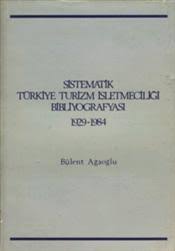
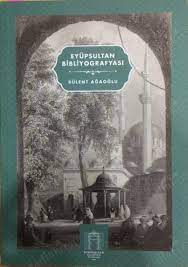
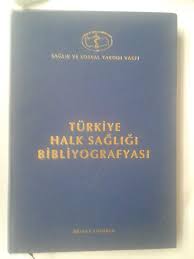
Located in Fatih district of Istanbul He was born in Vakıf Gureba Hospital, lived on Mutemet Sokak for 7 years. His father was born in Plovdiv (1928-1997) and his mother in Skopje (1936- ). He grew up under the influence of Rumelian culture. Fatih’s historical artifacts, famous state, science, culture, art etc. It was very influenced by the fact that it is a district where famous people live in areas. He graduated from Atikali Primary School, Şehremini High School (1975), and Marmara University, Faculty of Political Sciences, Department of Public Administration (1980). He completed his master’s degree in Tourism Management at Hacettepe University. (1981-1984).
Read more: https://bulentagaoglu.blogspot.com/2019/10/bulent-agaoglu-ozgecmis_22.html
Areas of Interest BIBTA Turkey’s Bibliography Database, Bibliography, Creativity, Developing thought-suggestion, Method (Thoughts / Generating different ideas; Evaluation of thoughts, opinions, text (text)), Unquestioned memorizations, Short, concise and easy-to-understand text writing , Information databases, Information resources, Information services, Inventions, Savings, Waste, Recycling. Building reinforcement, Istanbul possible major earthquake, Practical conveniences in daily life.
A Story of Turkish Coffee, Baklava and Kebabs: Wandering Through the Streets, Flavors, and History of Istanbul
$2.99 (as of 06/02/2026 22:15 GMT +03:00 - More infoProduct prices and availability are accurate as of the date/time indicated and are subject to change. Any price and availability information displayed on [relevant Amazon Site(s), as applicable] at the time of purchase will apply to the purchase of this product.)The Mini Rough Guide to Istanbul and the Aegean Coast: Travel Guide with eBook
$9.27 (as of 06/02/2026 22:15 GMT +03:00 - More infoProduct prices and availability are accurate as of the date/time indicated and are subject to change. Any price and availability information displayed on [relevant Amazon Site(s), as applicable] at the time of purchase will apply to the purchase of this product.)Istanbul & Northwest Turkey Travel Reference Map WP
$9.89 (as of 06/02/2026 22:15 GMT +03:00 - More infoProduct prices and availability are accurate as of the date/time indicated and are subject to change. Any price and availability information displayed on [relevant Amazon Site(s), as applicable] at the time of purchase will apply to the purchase of this product.)Lonely Planet Istanbul (Travel Guide)
$5.58 (as of 06/02/2026 22:15 GMT +03:00 - More infoProduct prices and availability are accurate as of the date/time indicated and are subject to change. Any price and availability information displayed on [relevant Amazon Site(s), as applicable] at the time of purchase will apply to the purchase of this product.)Modern Istanbul Map / Modern Istanbul Haritasi: Guide to Modern Architecture in Istanbul, Turkey (Blue Crow Media Architecture Maps)
$13.00 (as of 06/02/2026 22:15 GMT +03:00 - More infoProduct prices and availability are accurate as of the date/time indicated and are subject to change. Any price and availability information displayed on [relevant Amazon Site(s), as applicable] at the time of purchase will apply to the purchase of this product.)Istanbul Travel Guide 2025/2026: Sultanahmet, Beyoğlu: Shopping and Nightlife, Kadıköy, Balat and Fener, Markets and Shopping,Hagia Sophia,Must-See ... Galata Tower. (Best Travel Guides 2025)
$11.99 (as of 06/02/2026 22:15 GMT +03:00 - More infoProduct prices and availability are accurate as of the date/time indicated and are subject to change. Any price and availability information displayed on [relevant Amazon Site(s), as applicable] at the time of purchase will apply to the purchase of this product.)DK Eyewitness Istanbul (Travel Guide)
$7.97 (as of 06/02/2026 22:15 GMT +03:00 - More infoProduct prices and availability are accurate as of the date/time indicated and are subject to change. Any price and availability information displayed on [relevant Amazon Site(s), as applicable] at the time of purchase will apply to the purchase of this product.)Laminated Istanbul Map by Borch (English) (English, Spanish, French, Italian and German Edition)
$5.96 (as of 06/02/2026 22:15 GMT +03:00 - More infoProduct prices and availability are accurate as of the date/time indicated and are subject to change. Any price and availability information displayed on [relevant Amazon Site(s), as applicable] at the time of purchase will apply to the purchase of this product.)Wonders of Istanbul: A Photo Collection of the City’s Most Beautiful Places to See – A Stunning Coffee Table Travel Photobook
$23.99 (as of 06/02/2026 22:15 GMT +03:00 - More infoProduct prices and availability are accurate as of the date/time indicated and are subject to change. Any price and availability information displayed on [relevant Amazon Site(s), as applicable] at the time of purchase will apply to the purchase of this product.)Istanbul Travel Guide 2026: Your All-in-One Resource: Explore Must-See Attractions, Curated Itineraries, Budget-Friendly and Accessible Stays, Up-to-Date Essentials, and Sustainable Travel Tips
$15.99 (as of 06/02/2026 22:15 GMT +03:00 - More infoProduct prices and availability are accurate as of the date/time indicated and are subject to change. Any price and availability information displayed on [relevant Amazon Site(s), as applicable] at the time of purchase will apply to the purchase of this product.)Lonely Planet Turkiye (Travel Guide)
$12.77 (as of 06/02/2026 22:20 GMT +03:00 - More infoProduct prices and availability are accurate as of the date/time indicated and are subject to change. Any price and availability information displayed on [relevant Amazon Site(s), as applicable] at the time of purchase will apply to the purchase of this product.)Istanbul, City map 1:10.000, City Pocket map + The Big Five
$12.13 (as of 06/02/2026 22:20 GMT +03:00 - More infoProduct prices and availability are accurate as of the date/time indicated and are subject to change. Any price and availability information displayed on [relevant Amazon Site(s), as applicable] at the time of purchase will apply to the purchase of this product.)Conversational Turkish Dialogues: Over 100 Turkish Conversations and Short Stories (Conversational Turkish Dual Language Books)
$6.40 (as of 06/02/2026 22:20 GMT +03:00 - More infoProduct prices and availability are accurate as of the date/time indicated and are subject to change. Any price and availability information displayed on [relevant Amazon Site(s), as applicable] at the time of purchase will apply to the purchase of this product.)Turkey Travel and Exploration Guide - 2025: The Ultimate Traveler's Guide to Turkey from the Experiences of a Local Guide
$11.01 (as of 06/02/2026 22:20 GMT +03:00 - More infoProduct prices and availability are accurate as of the date/time indicated and are subject to change. Any price and availability information displayed on [relevant Amazon Site(s), as applicable] at the time of purchase will apply to the purchase of this product.)Lonely Planet Pocket Istanbul (Pocket Guide)
$11.85 (as of 06/02/2026 22:20 GMT +03:00 - More infoProduct prices and availability are accurate as of the date/time indicated and are subject to change. Any price and availability information displayed on [relevant Amazon Site(s), as applicable] at the time of purchase will apply to the purchase of this product.)A Guide to Biblical Sites in Greece and Turkey
$15.83 (as of 06/02/2026 22:20 GMT +03:00 - More infoProduct prices and availability are accurate as of the date/time indicated and are subject to change. Any price and availability information displayed on [relevant Amazon Site(s), as applicable] at the time of purchase will apply to the purchase of this product.)Bake Sale
$2.39 (as of 06/02/2026 22:20 GMT +03:00 - More infoProduct prices and availability are accurate as of the date/time indicated and are subject to change. Any price and availability information displayed on [relevant Amazon Site(s), as applicable] at the time of purchase will apply to the purchase of this product.)Lonely Planet Turkey (Travel Guide)
$2.50 (as of 06/02/2026 22:20 GMT +03:00 - More infoProduct prices and availability are accurate as of the date/time indicated and are subject to change. Any price and availability information displayed on [relevant Amazon Site(s), as applicable] at the time of purchase will apply to the purchase of this product.)Lonely Planet Istanbul (Travel Guide)
$5.58 (as of 06/02/2026 22:20 GMT +03:00 - More infoProduct prices and availability are accurate as of the date/time indicated and are subject to change. Any price and availability information displayed on [relevant Amazon Site(s), as applicable] at the time of purchase will apply to the purchase of this product.)DK Eyewitness Travel Guide Turkey (Eyewitness Travel Guides)
$12.11 (as of 06/02/2026 22:20 GMT +03:00 - More infoProduct prices and availability are accurate as of the date/time indicated and are subject to change. Any price and availability information displayed on [relevant Amazon Site(s), as applicable] at the time of purchase will apply to the purchase of this product.)Fatih, Istanbul
I was born in Fatih district of Istanbul that is the core of İstanbul and Fatih is the historical peninsula surrounded by castles totally from the Golden Horn and Marmara Sea around. All the famous towns are scattered in Fatih.
The feelings you have in the Fatih area is very unique and special and if you’re in the area you feel that it is the center of the world, not only with the center of the world. Because, Roman empire that Emperor Constantin set up in 395 and Turkish Ottoman Empire in resetted by Sultan Fatih in 1453 were all controlled from Fatih district of Istanbul.
It may have been much better to have a faunus covered upon the sky of İstanbul to protect all the historical buildings of Fatih area where I was born which is just near to the Fatih Mosque. In Turkish language there’s a saying and thought that while Fatih area is a symbol for the history, Harbiye represents modernity.
In 1974 I bought a Russian camera for black-and-white photographs. Firstly I started from Fatih and then proceeded to Western Turkey antique locations because of my involvement with the touristic guide course. I started from the roads and streets of the old towns of Fatih 45 years ago and got the photos of ordinary people, elderly, youngsters, children, the historical buildings and the wooden buildings in that part of the city.
We may call Fatih as the city in the real sense. The oldest company in Turkey is Çemberlitaş Hamami started in 1584 in Fatih, the biggest church in the world Saint Sophia is in Fatih, Suleymaniye Mosque is in Fatih.
Roman and Ottoman Turkish armies started their military advancement journies all from Fatih District. Mesa Avenue of Roman Empire and Topkapi Palace of Ottoman Empire were well effective in these advancements.
Istanbul was symboled by royal signature of Fatih as with the mission of “Always”.
I lived my life up to 30 years old in Fatih. Fatih is a kind of mentality of the conqueror caring for the people, looking for the justice of the people and always leading with the people. You cannot be alone during your life with the understanding you have developed in Fatih area. The spirit makes a great difference with the living leadership in that area.
Constantinople started the New Rome in that area and the Conqueror Fatih also started the new era in 15th century in that area. So here is the center of the world with Fatih’s universality as well. These black and white photographs taken at 1974 and 1975 show us the traditional past of the historical Peninsula before 1980 military coup.
Street Vendors and children, teenagers are the common instances of Fatih streets. Maybe the elderly on the photographs are not living now. So we can analyze living conditions of the time just after the war happened in Cyprus and Turkey started to be entering into street movements with guns which lead to the country to military coup in 12 September 1980. Photographs also reflect the buildings and the streets of İstanbul at that time. Though the buildings are very old and rich in history, the people were not that richness at the most conservative part of the İstanbul.
Following photographs of Fatih and İstanbul I moved to Aegean Western Turkey, Dardanelles, Troy, Bergama, Smyrna İzmir, Seljuk, Ephesus and down to Didyma taking photos of antique sites, theatres, temples and museums. .
Turkey is unique in the world with it richness of antique and cultures. Troy is the area where the big war happened between Greece and Anatolians written in legend and around Smyrna İzmir famous philosophers have lived before 500 BC, so we can say that Turkey geography is the homeland of the philosophical thinking starting with the Miletos philosophers.
The Rough Guide to Istanbul
$4.13 (as of 06/02/2026 22:15 GMT +03:00 - More infoProduct prices and availability are accurate as of the date/time indicated and are subject to change. Any price and availability information displayed on [relevant Amazon Site(s), as applicable] at the time of purchase will apply to the purchase of this product.)Stamboul Ghosts: A Stroll Through Bohemian Istanbul
$20.02 (as of 06/02/2026 22:15 GMT +03:00 - More infoProduct prices and availability are accurate as of the date/time indicated and are subject to change. Any price and availability information displayed on [relevant Amazon Site(s), as applicable] at the time of purchase will apply to the purchase of this product.)Rick Steves Istanbul: With Ephesus & Cappadocia
$10.45 (as of 06/02/2026 22:15 GMT +03:00 - More infoProduct prices and availability are accurate as of the date/time indicated and are subject to change. Any price and availability information displayed on [relevant Amazon Site(s), as applicable] at the time of purchase will apply to the purchase of this product.)Istanbul Travel Guide 2025/2026: Sultanahmet, Beyoğlu: Shopping and Nightlife, Kadıköy, Balat and Fener, Markets and Shopping,Hagia Sophia,Must-See ... Galata Tower. (Best Travel Guides 2025)
$11.99 (as of 06/02/2026 22:15 GMT +03:00 - More infoProduct prices and availability are accurate as of the date/time indicated and are subject to change. Any price and availability information displayed on [relevant Amazon Site(s), as applicable] at the time of purchase will apply to the purchase of this product.)Blue Guide Istanbul
$9.99 (as of 06/02/2026 22:15 GMT +03:00 - More infoProduct prices and availability are accurate as of the date/time indicated and are subject to change. Any price and availability information displayed on [relevant Amazon Site(s), as applicable] at the time of purchase will apply to the purchase of this product.)Rick Steves Istanbul: With Ephesus & Cappadocia
$3.38 (as of 06/02/2026 22:15 GMT +03:00 - More infoProduct prices and availability are accurate as of the date/time indicated and are subject to change. Any price and availability information displayed on [relevant Amazon Site(s), as applicable] at the time of purchase will apply to the purchase of this product.)A Story of Turkish Coffee, Baklava and Kebabs: Wandering Through the Streets, Flavors, and History of Istanbul
$2.99 (as of 06/02/2026 22:15 GMT +03:00 - More infoProduct prices and availability are accurate as of the date/time indicated and are subject to change. Any price and availability information displayed on [relevant Amazon Site(s), as applicable] at the time of purchase will apply to the purchase of this product.)Istanbul: A Collection of Beautiful Photos for Istanbul Lovers, Coffee Table Picture Book (Travel Photography)
$27.99 (as of 06/02/2026 22:15 GMT +03:00 - More infoProduct prices and availability are accurate as of the date/time indicated and are subject to change. Any price and availability information displayed on [relevant Amazon Site(s), as applicable] at the time of purchase will apply to the purchase of this product.)Lonely Planet Istanbul (Travel Guide)
$5.58 (as of 06/02/2026 22:15 GMT +03:00 - More infoProduct prices and availability are accurate as of the date/time indicated and are subject to change. Any price and availability information displayed on [relevant Amazon Site(s), as applicable] at the time of purchase will apply to the purchase of this product.)The History of Istanbul: From Byzantion to Modern Times (History of Turkey Books)
$15.99 (as of 06/02/2026 22:15 GMT +03:00 - More infoProduct prices and availability are accurate as of the date/time indicated and are subject to change. Any price and availability information displayed on [relevant Amazon Site(s), as applicable] at the time of purchase will apply to the purchase of this product.)Crescent and Star: Turkey Between Two Worlds
$6.49 (as of 06/02/2026 22:20 GMT +03:00 - More infoProduct prices and availability are accurate as of the date/time indicated and are subject to change. Any price and availability information displayed on [relevant Amazon Site(s), as applicable] at the time of purchase will apply to the purchase of this product.)Lonely Planet Pocket Istanbul (Pocket Guide)
$11.85 (as of 06/02/2026 22:20 GMT +03:00 - More infoProduct prices and availability are accurate as of the date/time indicated and are subject to change. Any price and availability information displayed on [relevant Amazon Site(s), as applicable] at the time of purchase will apply to the purchase of this product.)Rick Steves Istanbul: With Ephesus & Cappadocia
$10.45 (as of 06/02/2026 22:20 GMT +03:00 - More infoProduct prices and availability are accurate as of the date/time indicated and are subject to change. Any price and availability information displayed on [relevant Amazon Site(s), as applicable] at the time of purchase will apply to the purchase of this product.)Turkey Travel and Exploration Guide - 2025: The Ultimate Traveler's Guide to Turkey from the Experiences of a Local Guide
$11.01 (as of 06/02/2026 22:20 GMT +03:00 - More infoProduct prices and availability are accurate as of the date/time indicated and are subject to change. Any price and availability information displayed on [relevant Amazon Site(s), as applicable] at the time of purchase will apply to the purchase of this product.)Colors of Asia: A Visual Journey
$34.00 (as of 06/02/2026 22:20 GMT +03:00 - More infoProduct prices and availability are accurate as of the date/time indicated and are subject to change. Any price and availability information displayed on [relevant Amazon Site(s), as applicable] at the time of purchase will apply to the purchase of this product.)A Guide to Biblical Sites in Greece and Turkey
$15.83 (as of 06/02/2026 22:20 GMT +03:00 - More infoProduct prices and availability are accurate as of the date/time indicated and are subject to change. Any price and availability information displayed on [relevant Amazon Site(s), as applicable] at the time of purchase will apply to the purchase of this product.)Conversational Turkish Dialogues: Over 100 Turkish Conversations and Short Stories (Conversational Turkish Dual Language Books)
$6.40 (as of 06/02/2026 22:20 GMT +03:00 - More infoProduct prices and availability are accurate as of the date/time indicated and are subject to change. Any price and availability information displayed on [relevant Amazon Site(s), as applicable] at the time of purchase will apply to the purchase of this product.)Lonely Planet Turkiye (Travel Guide)
$12.77 (as of 06/02/2026 22:20 GMT +03:00 - More infoProduct prices and availability are accurate as of the date/time indicated and are subject to change. Any price and availability information displayed on [relevant Amazon Site(s), as applicable] at the time of purchase will apply to the purchase of this product.)Lonely Planet Turkey (Travel Guide)
$2.50 (as of 06/02/2026 22:20 GMT +03:00 - More infoProduct prices and availability are accurate as of the date/time indicated and are subject to change. Any price and availability information displayed on [relevant Amazon Site(s), as applicable] at the time of purchase will apply to the purchase of this product.)A Traveller's History of Turkey
$6.39 (as of 06/02/2026 22:20 GMT +03:00 - More infoProduct prices and availability are accurate as of the date/time indicated and are subject to change. Any price and availability information displayed on [relevant Amazon Site(s), as applicable] at the time of purchase will apply to the purchase of this product.)Turkish Philosophy and Water: Time and Ground
When we examine the spirit of the Turkish people conceptually, we encounter two interesting results. The first is the concept of person, and the second is the concept of heart. In all other languages, the concept of human appears as a soil / soil-based word as homo, humus, human, while the concept of water-based dynamic person is used only as a different concept in Turkish language; The person is related to the person (otter) who lives on the water‘s edge in the wetlands in the south of Siberia.
The texts that were put forward philosophically in Farabi were expressed by verses in Yunus Emre. Our human journey, which started with a quiche (otter) on the water edges of the south of Siberia, took its final form with Yunus Emre in Sivrihisar town of Asia Minor.
In Yunus Emre’s 417 poems, Turkish, which defines human and the universe with all seven concepts, has now found its consistency and has gained the highest level of expression.
The fixed and dynamic personality differences, which are permitted by different etymological origins of humus (soil) and Kis (otter), are also the contrasts of uniform (uniform) and binflower (hercai) richness. This is the difference between the “unity” of the individual, the selfishness and the richness of the selfish.
Turks dominated 3 continents in terms of ground. They are in constant motion on the ground. While time flows like water, the Turks are constantly flowing on the ground. The expression of human in the West with the concept of earth-based human shows its constancy in space, its dependence on space, and the concept of water-based person in the Turkish tradition, shows the flow of time on the floors.
The fluidity of contact with water explains the Turks ‘being a nomadic tribe, the Turkish states being an umbrella state, the Turks’ adaptability, their ability to synthesize and transform themselves and other tribes.
The West represents settled societies and space, Turks represent nomadism and time. (Jalal Tahir)
-
Humus: Latin humus is an extract from the word “soil“.
-
Humanus: Humane
-
Homo, Homin: Terrestrial, Human

